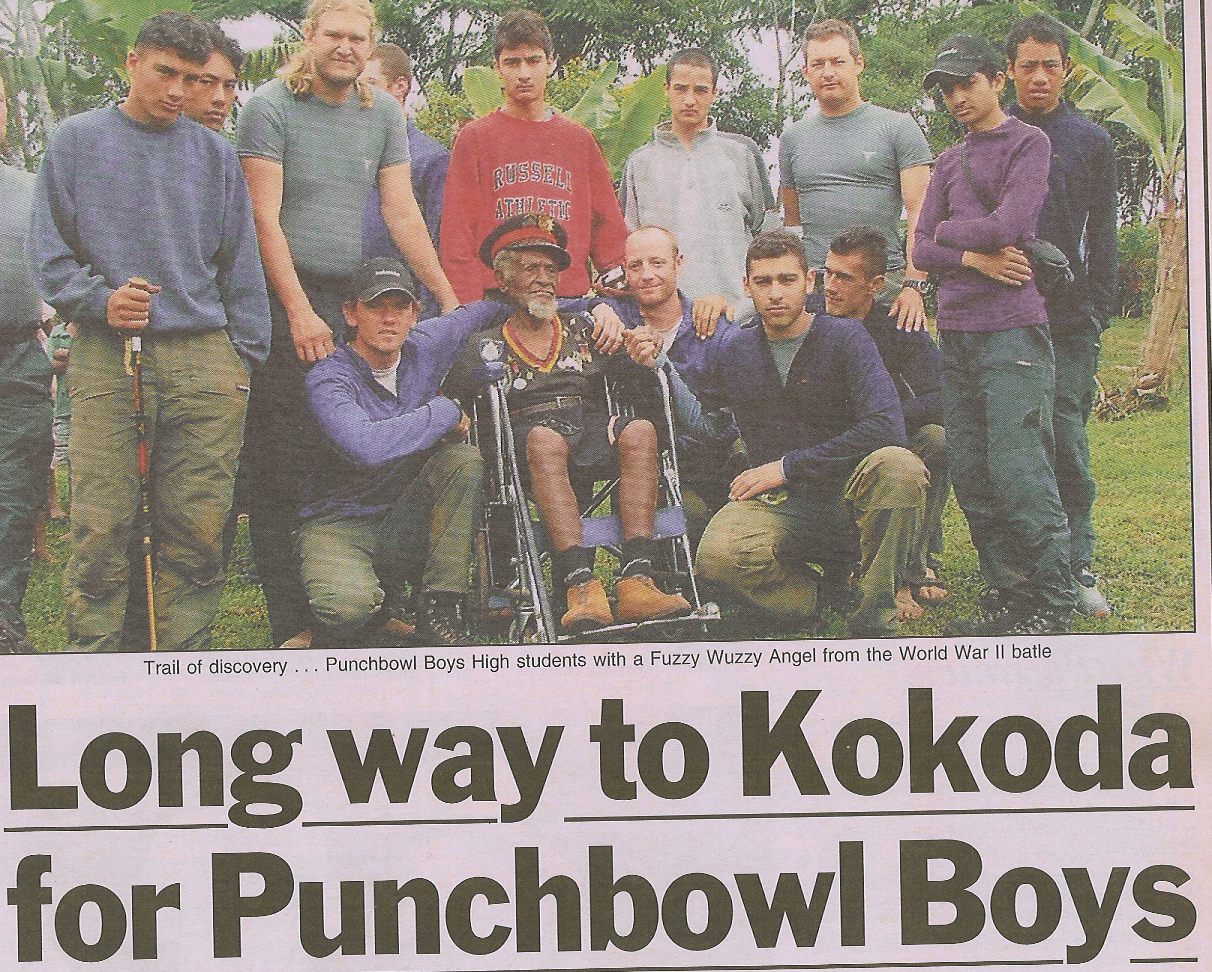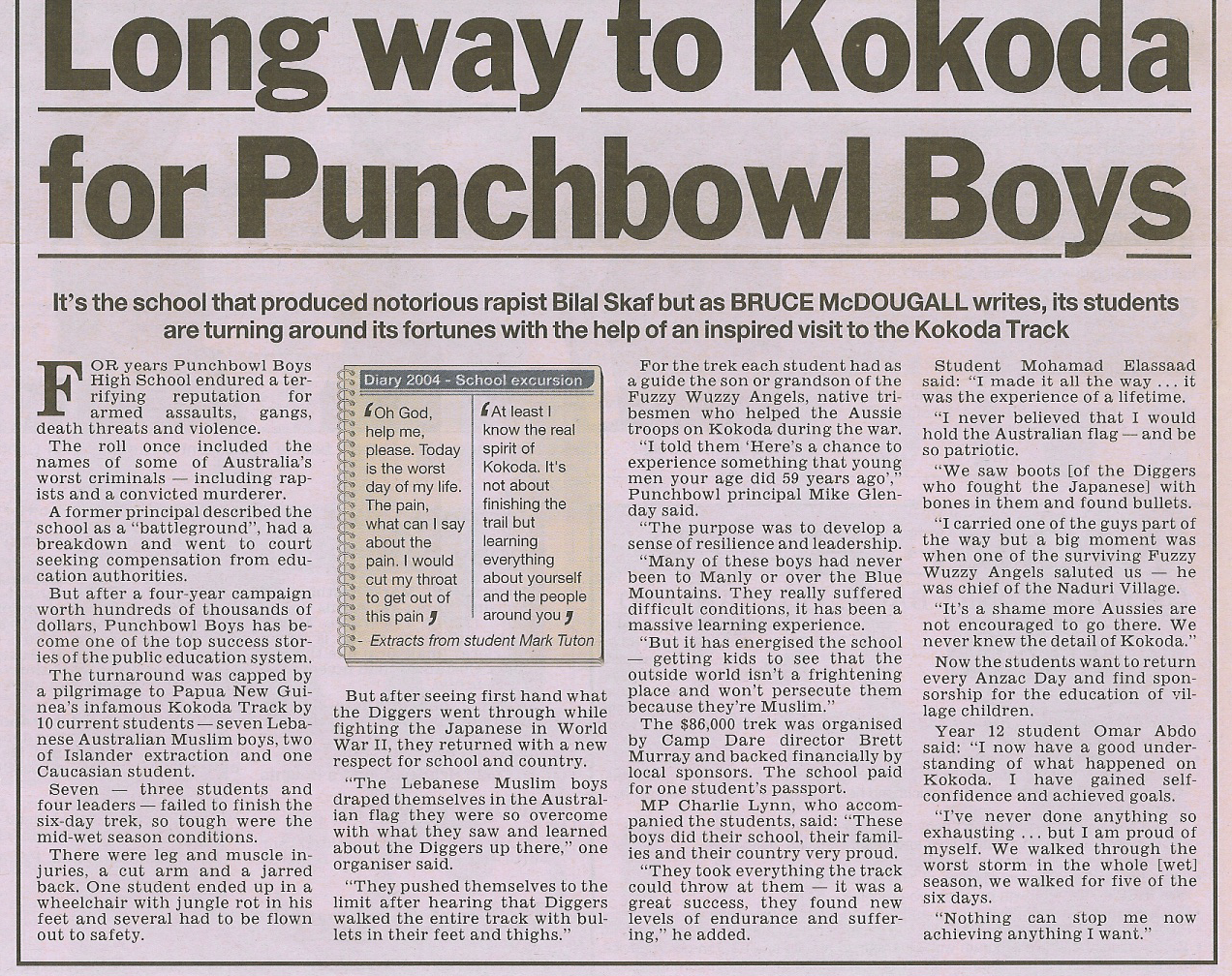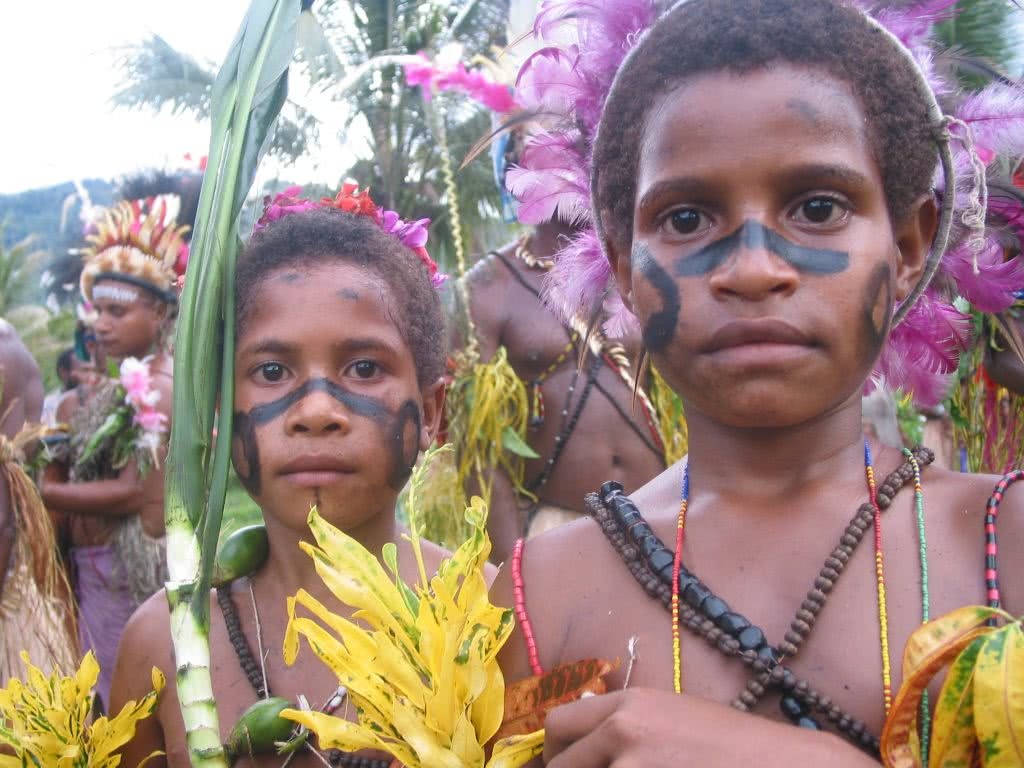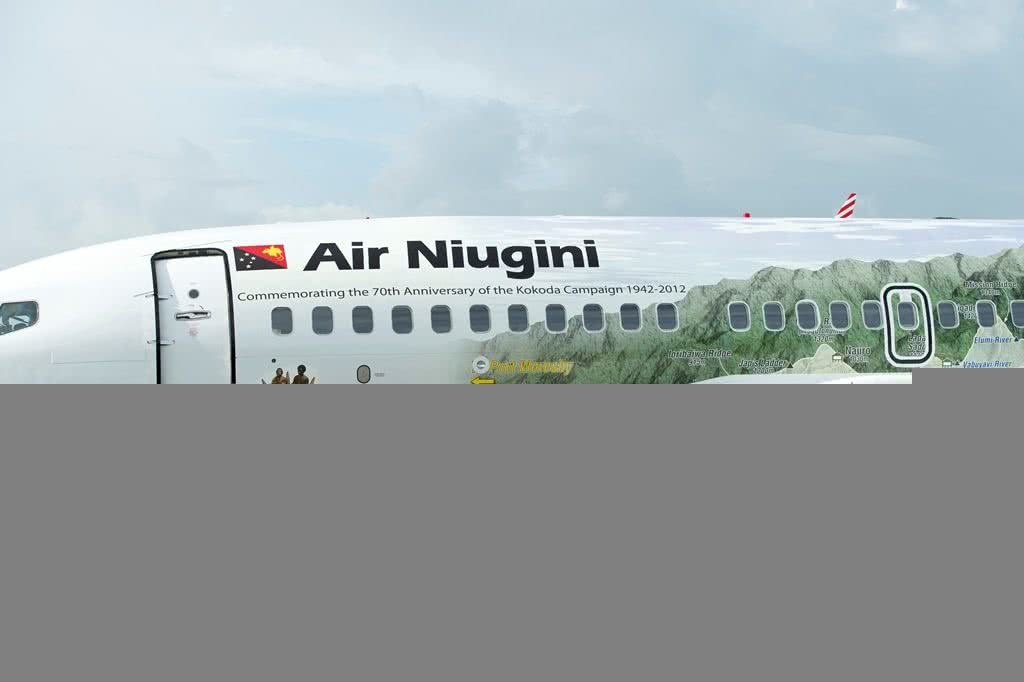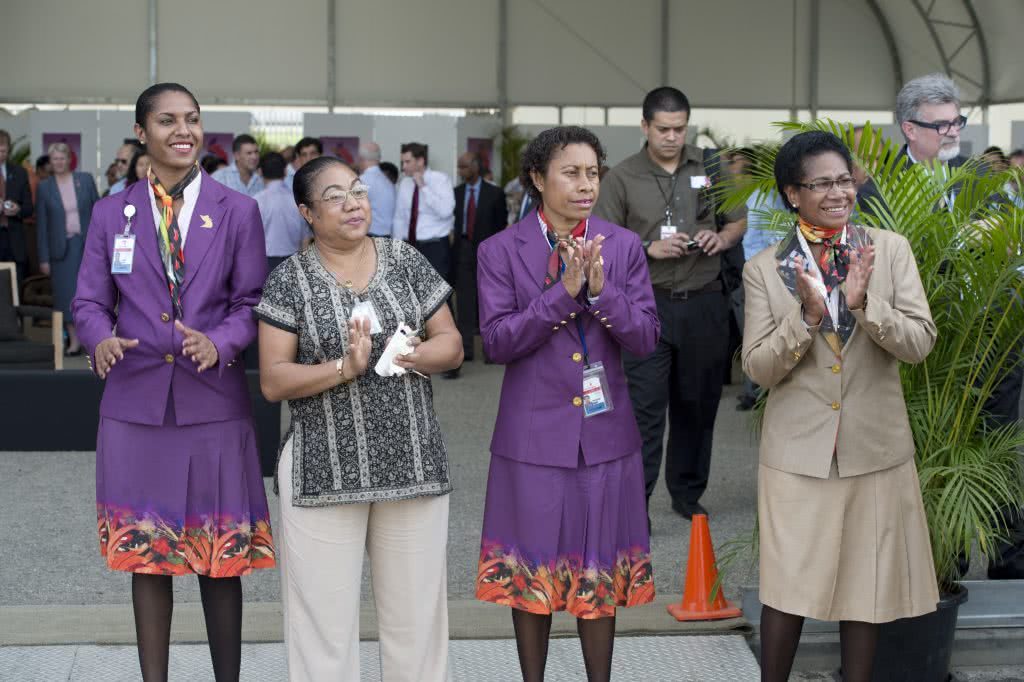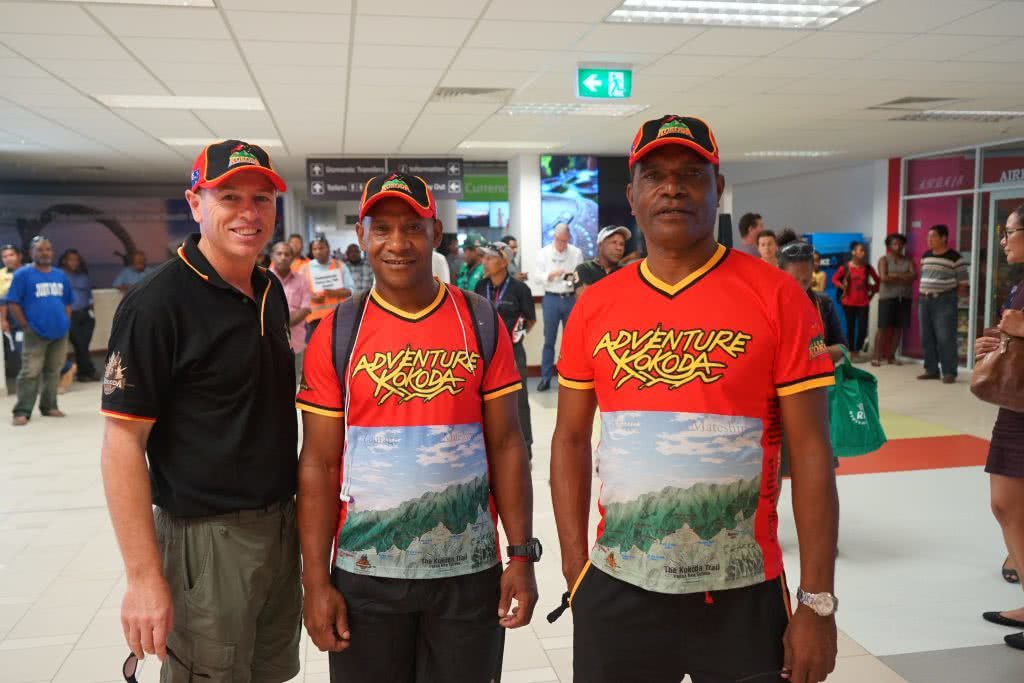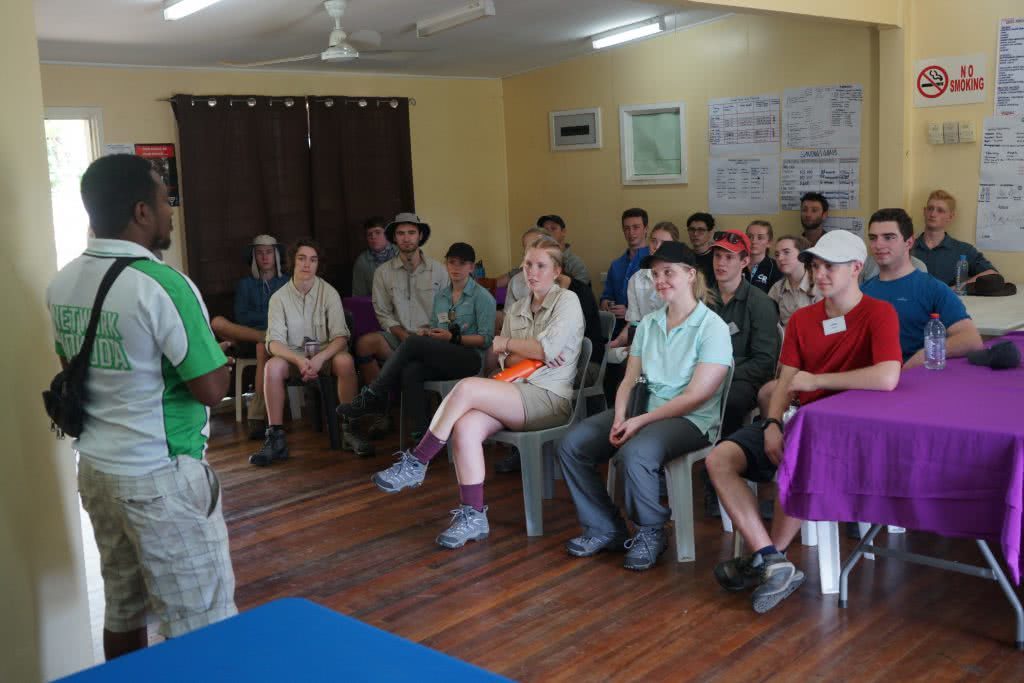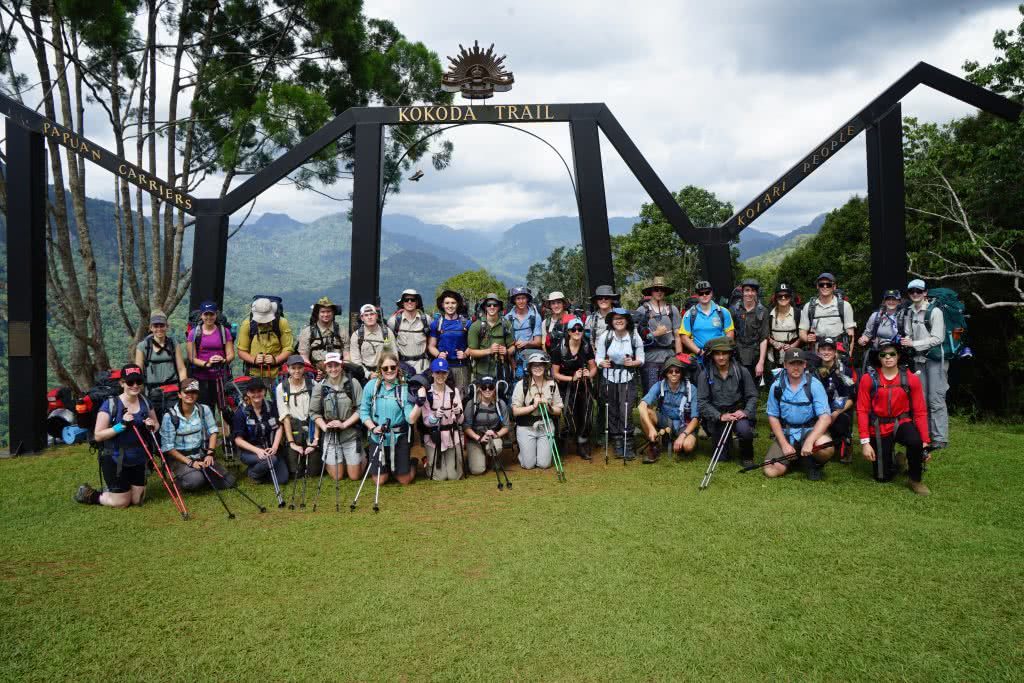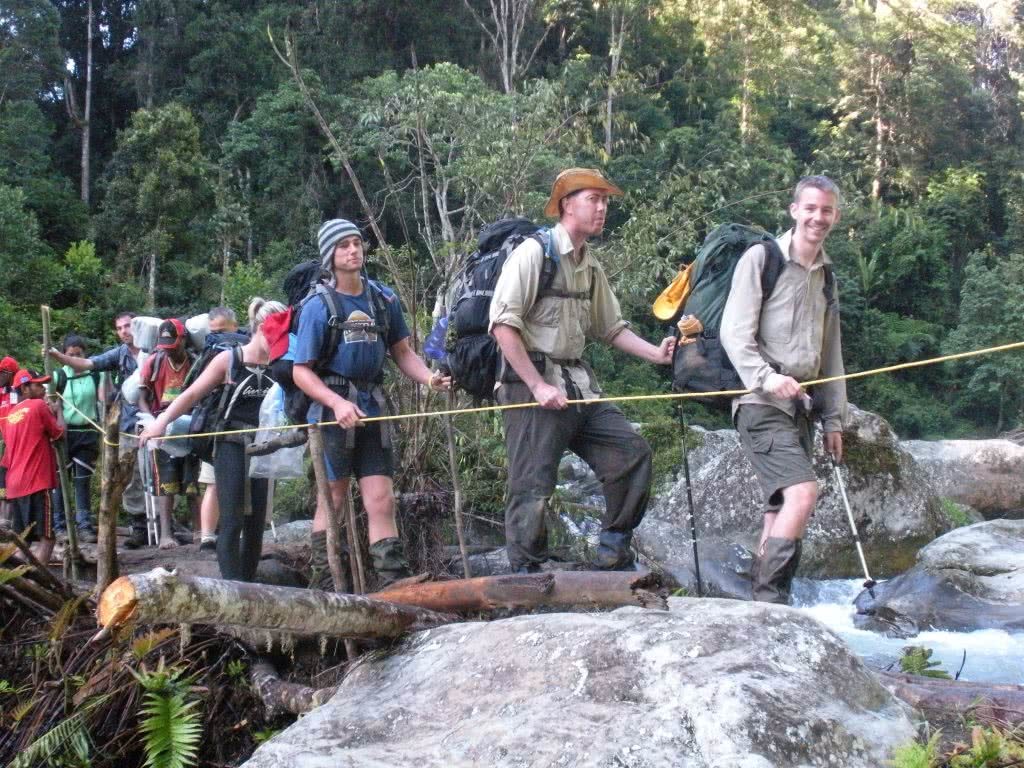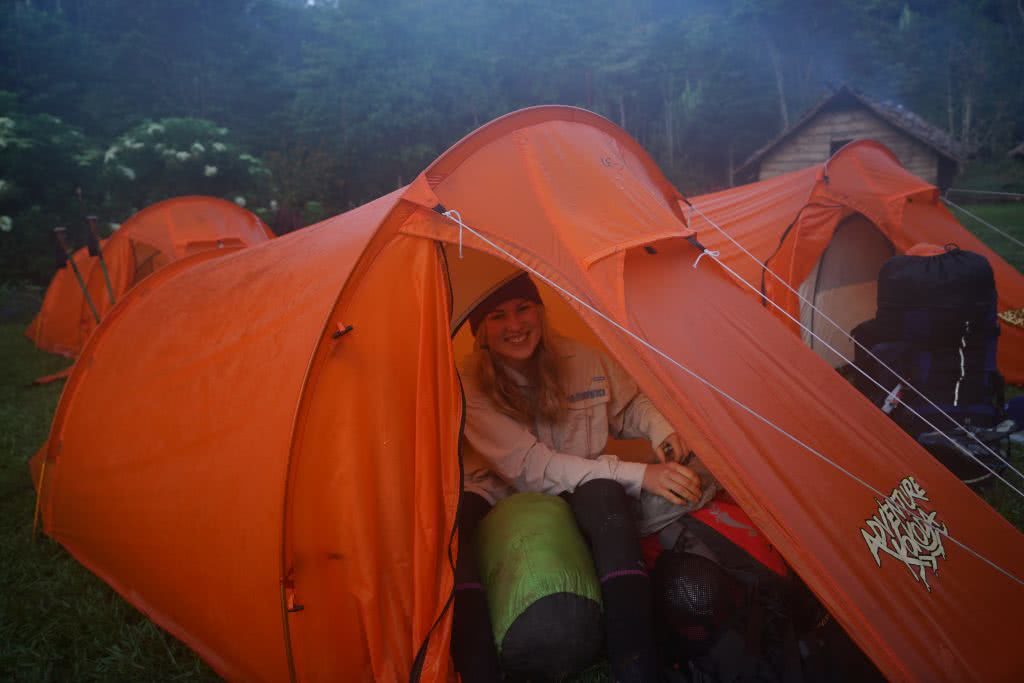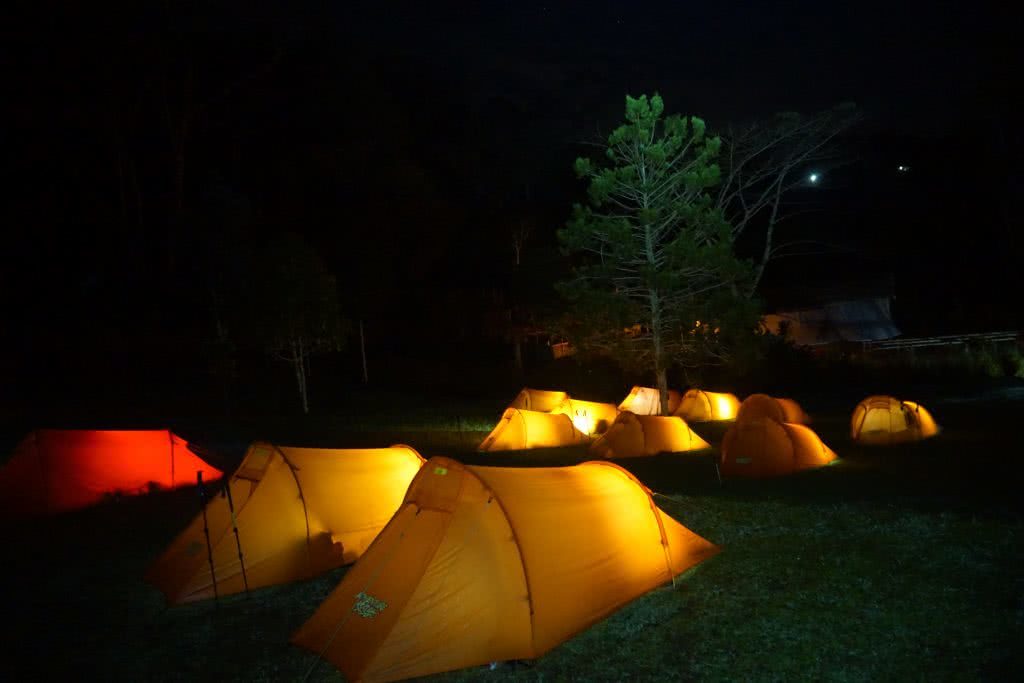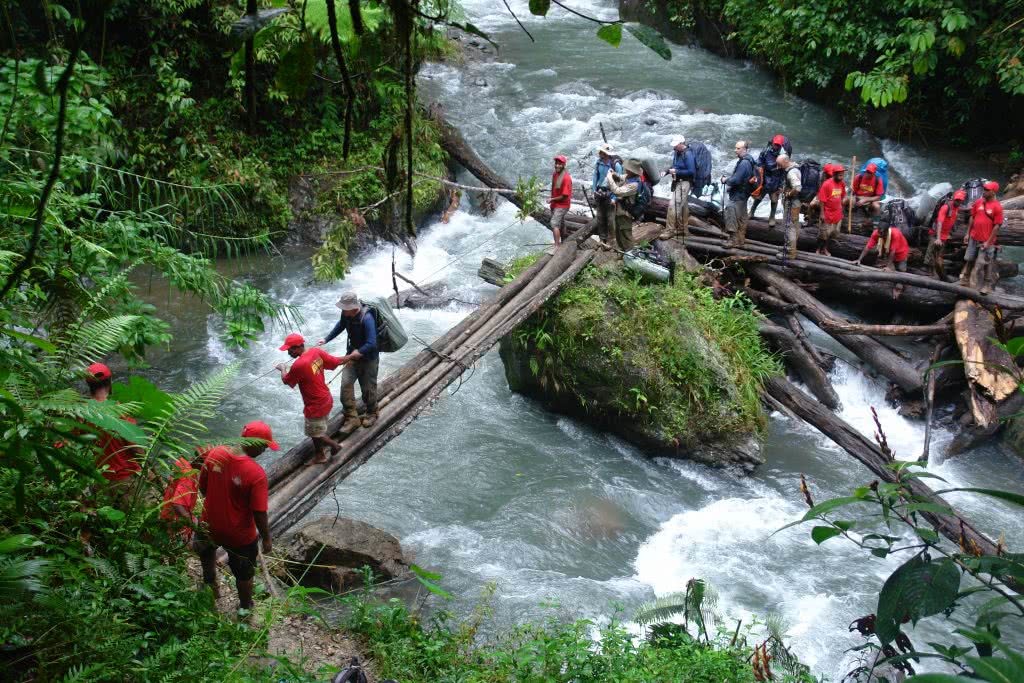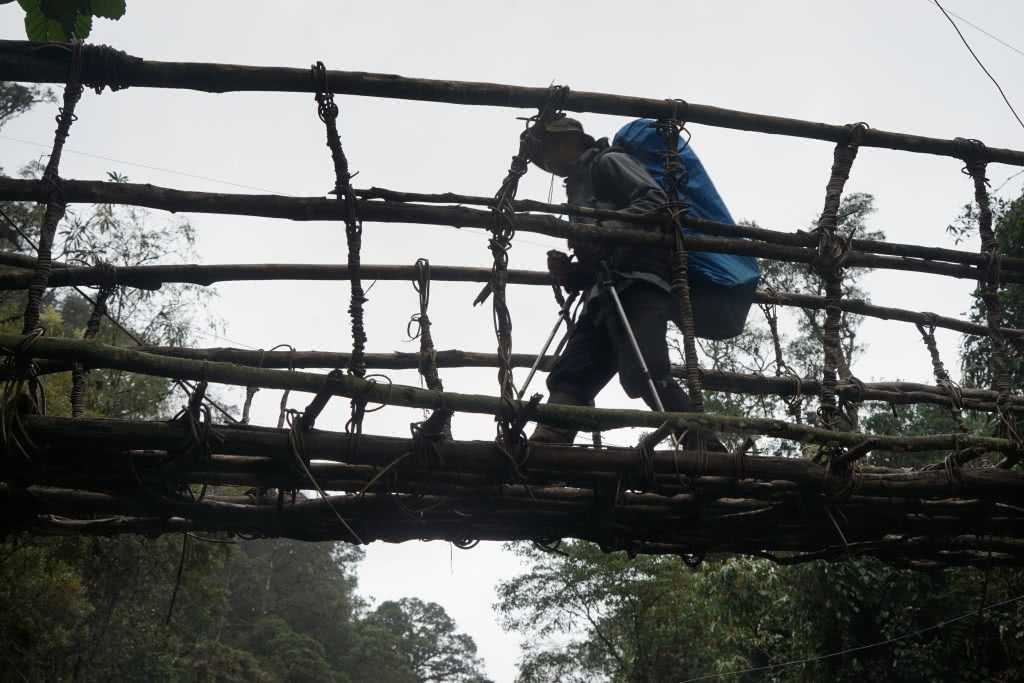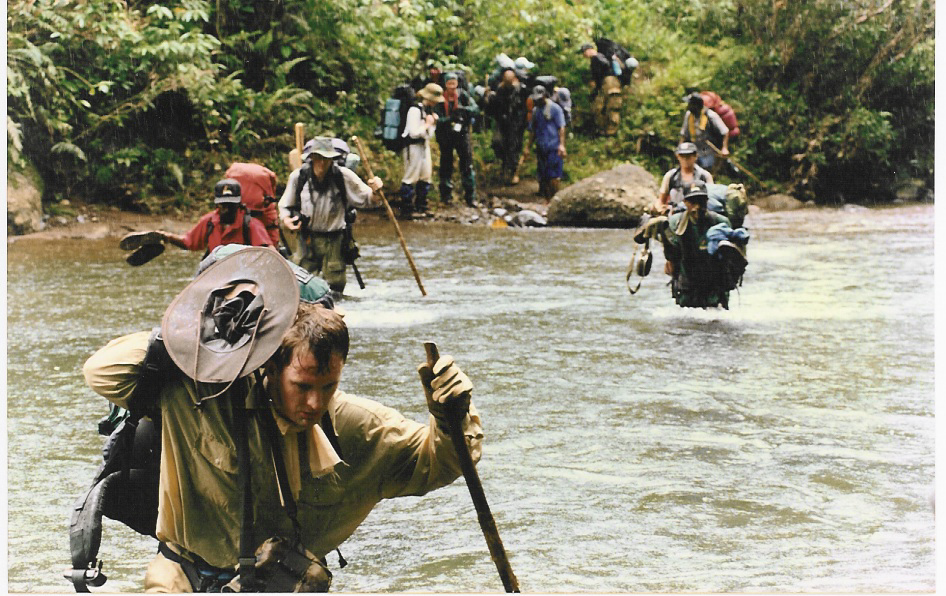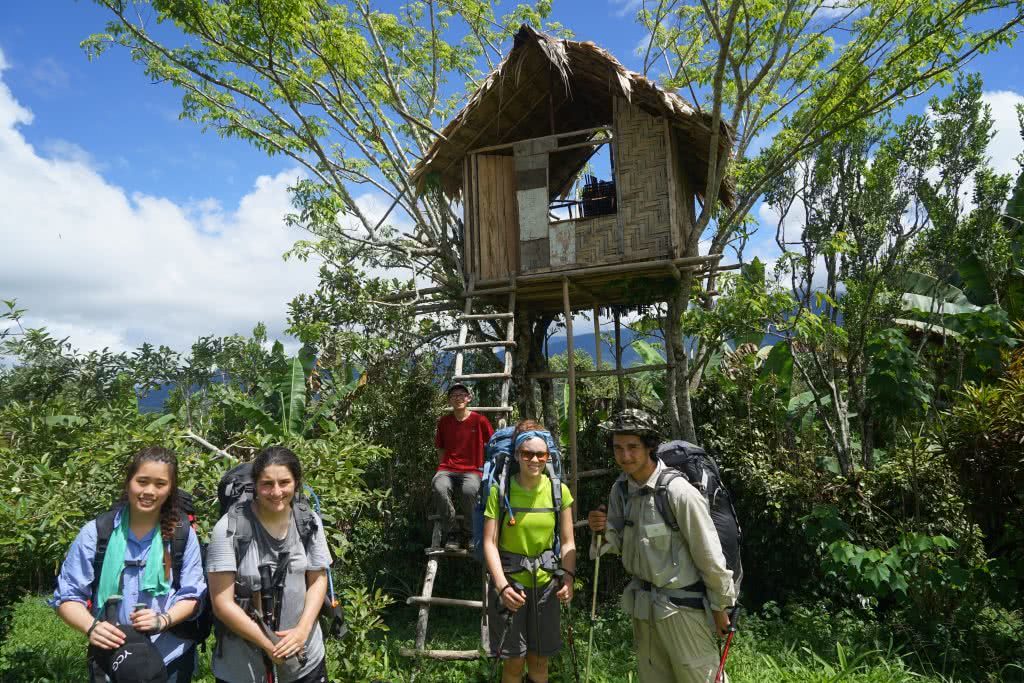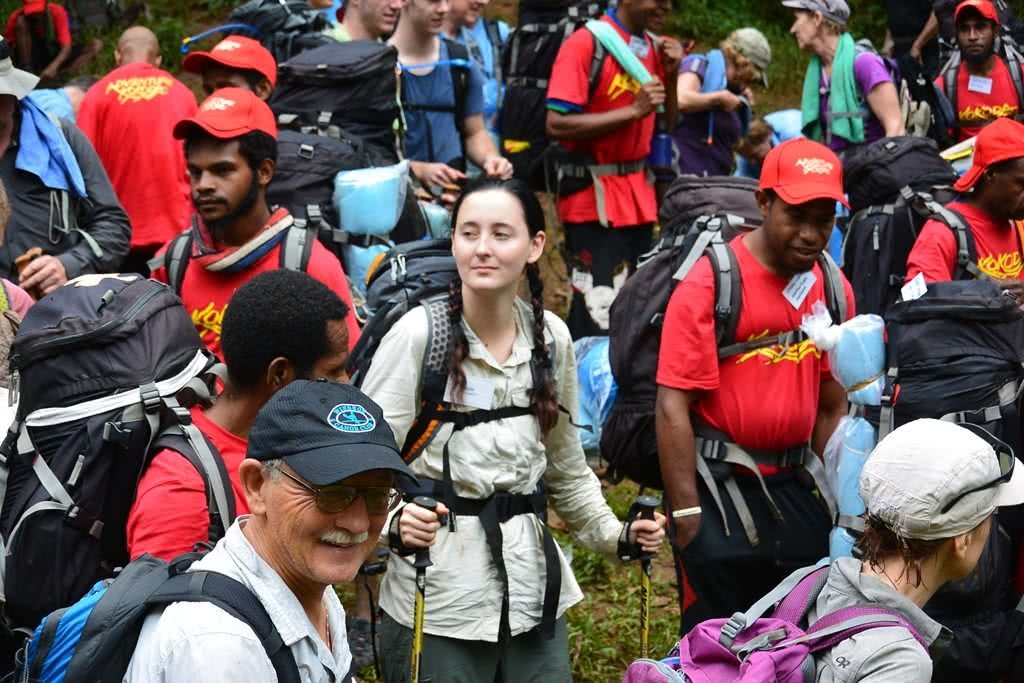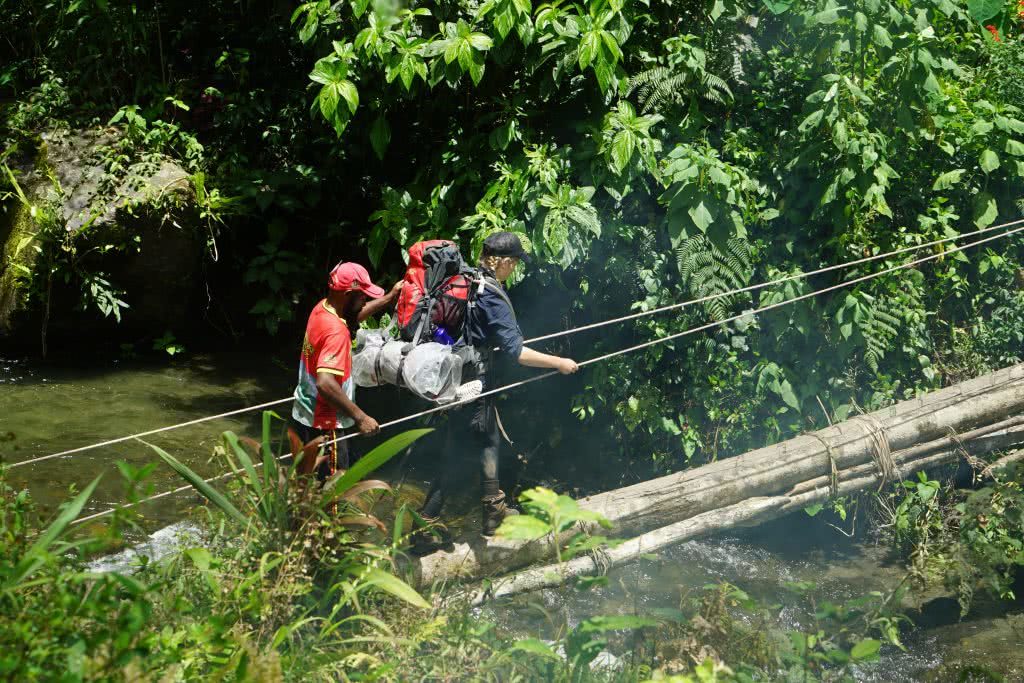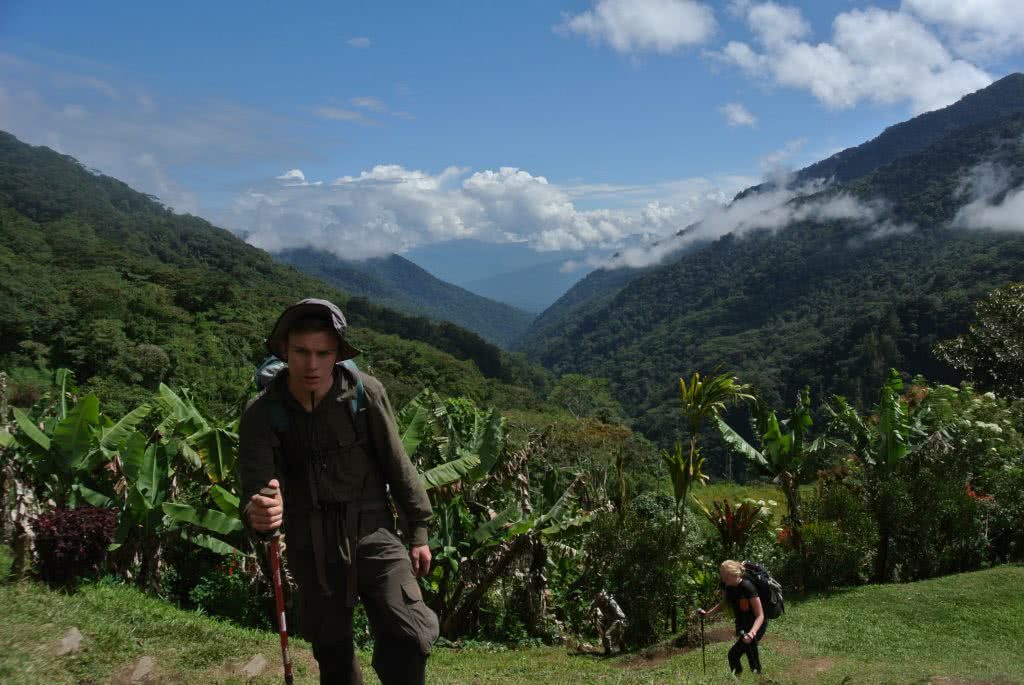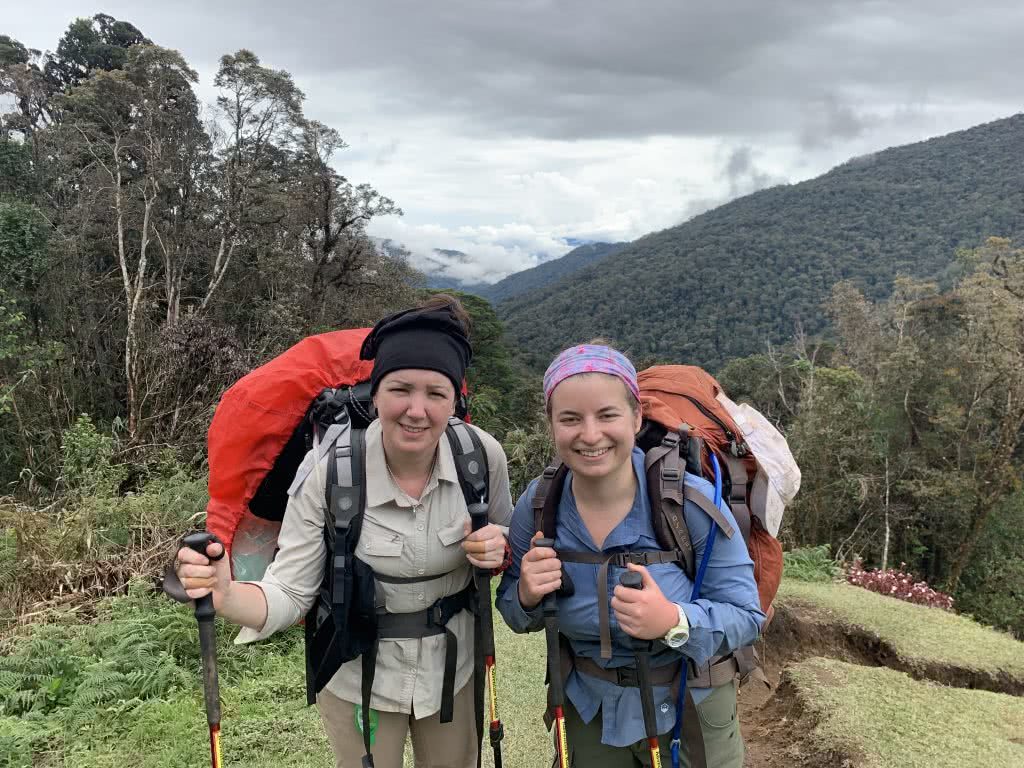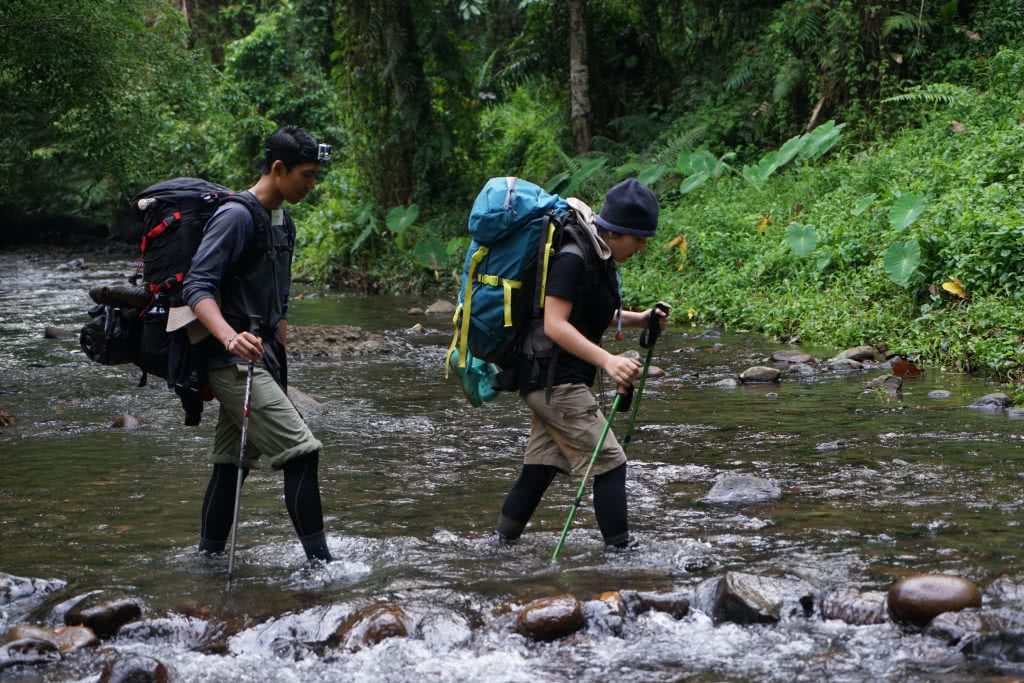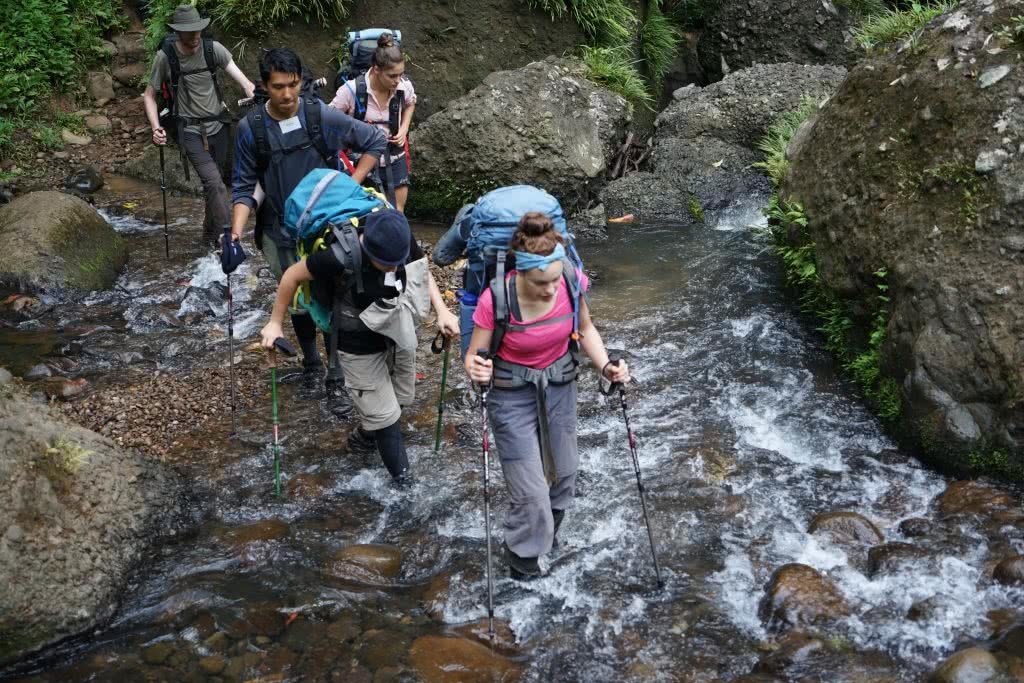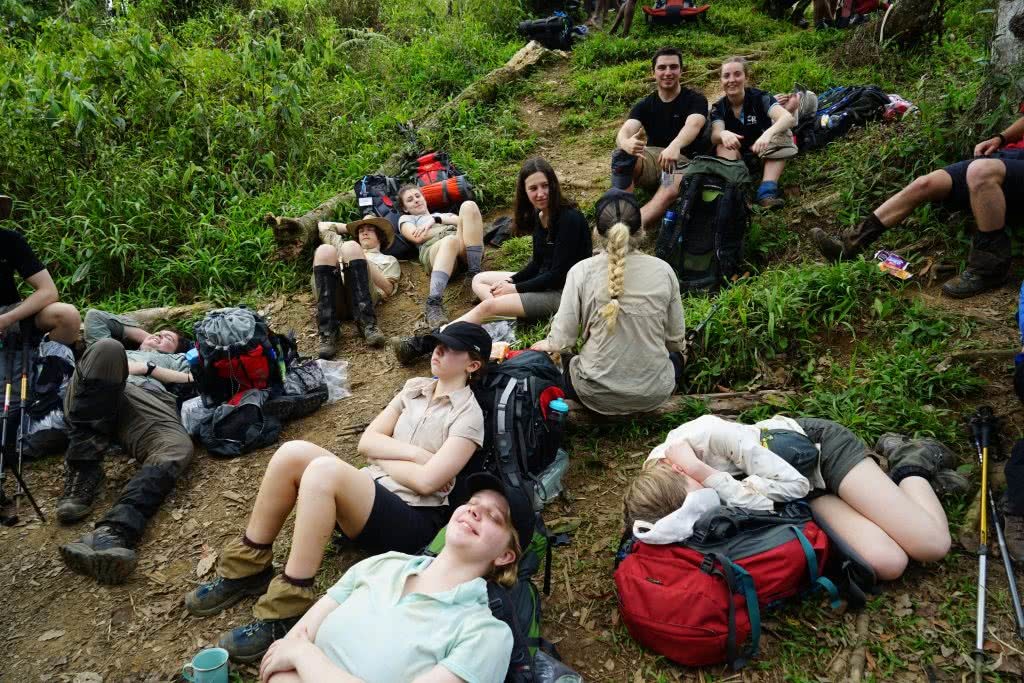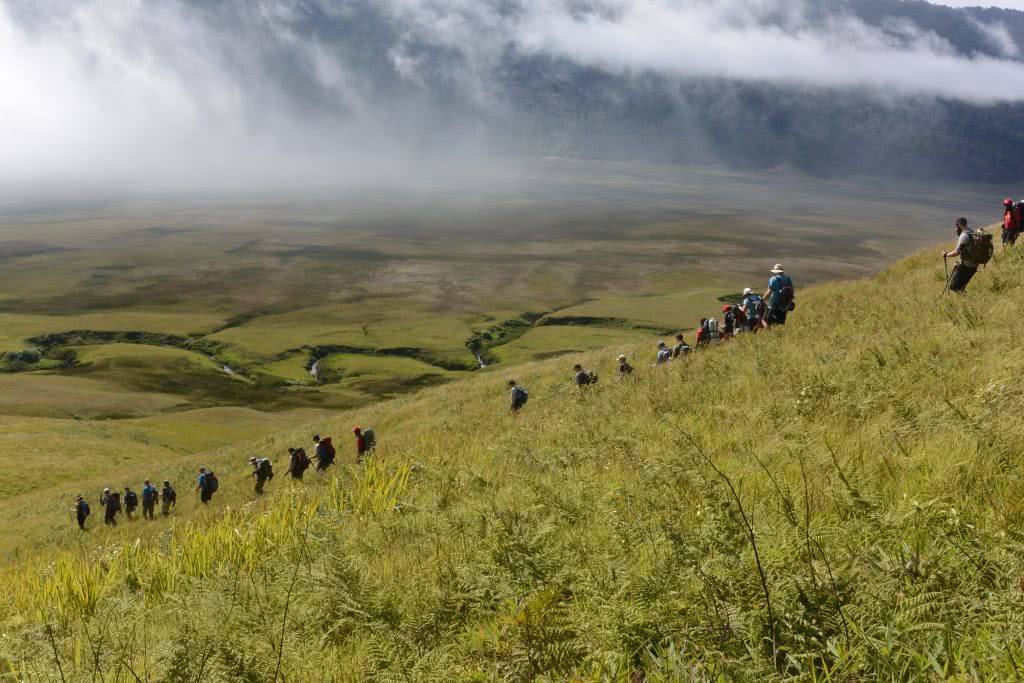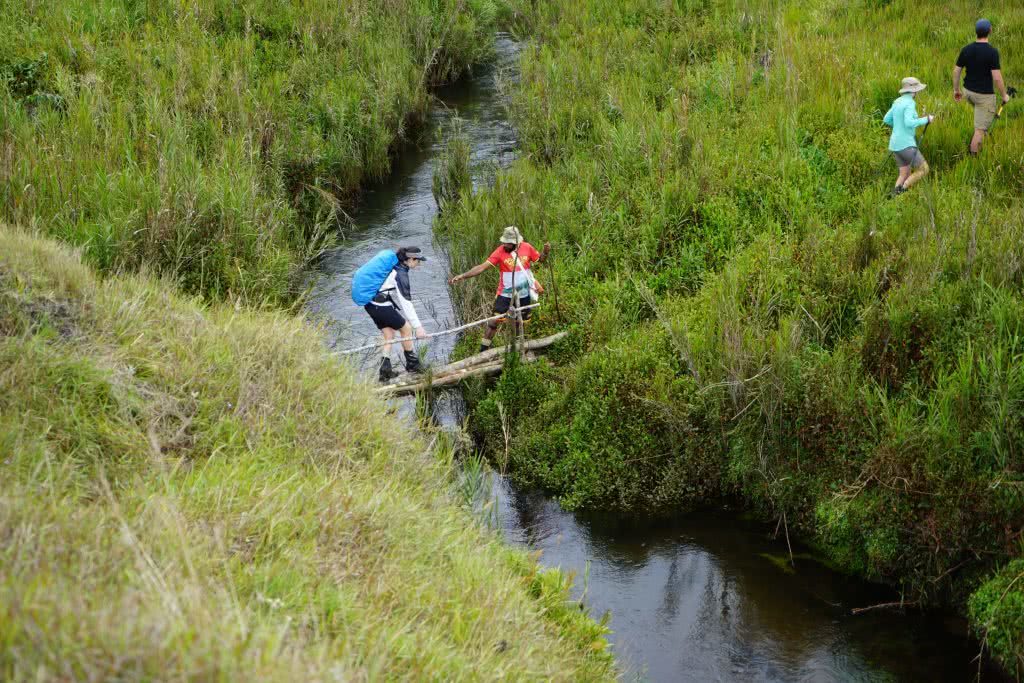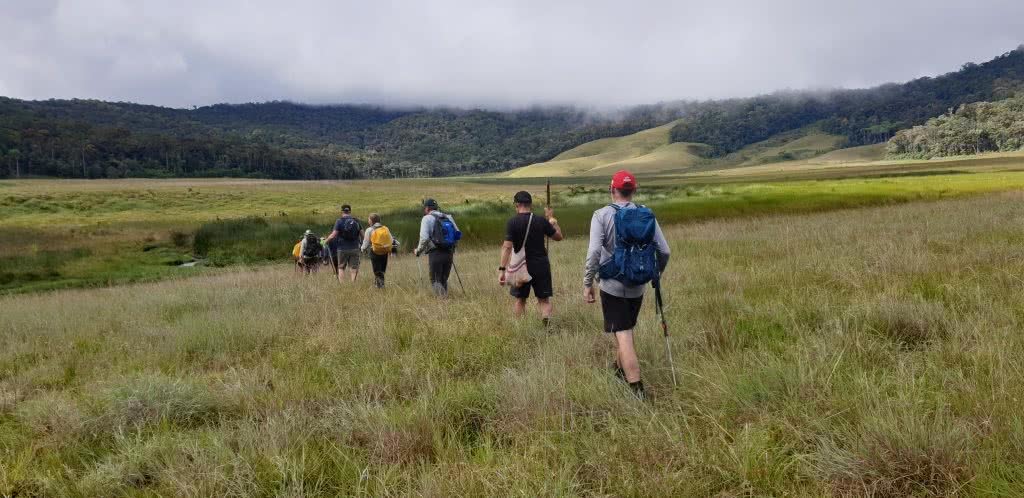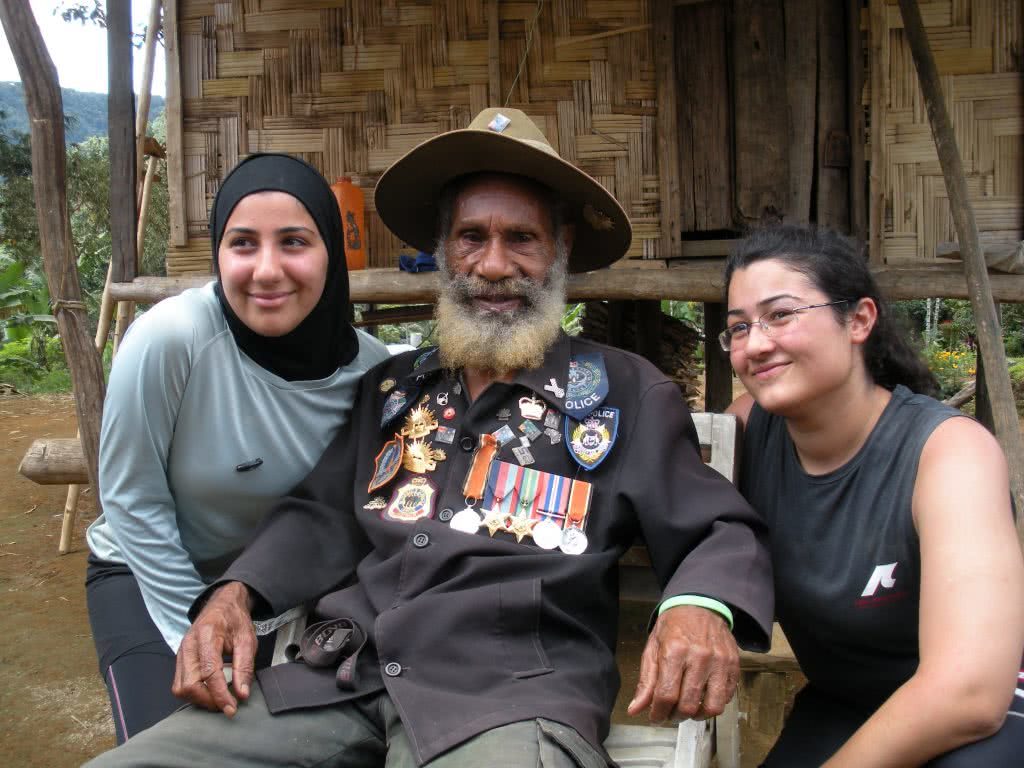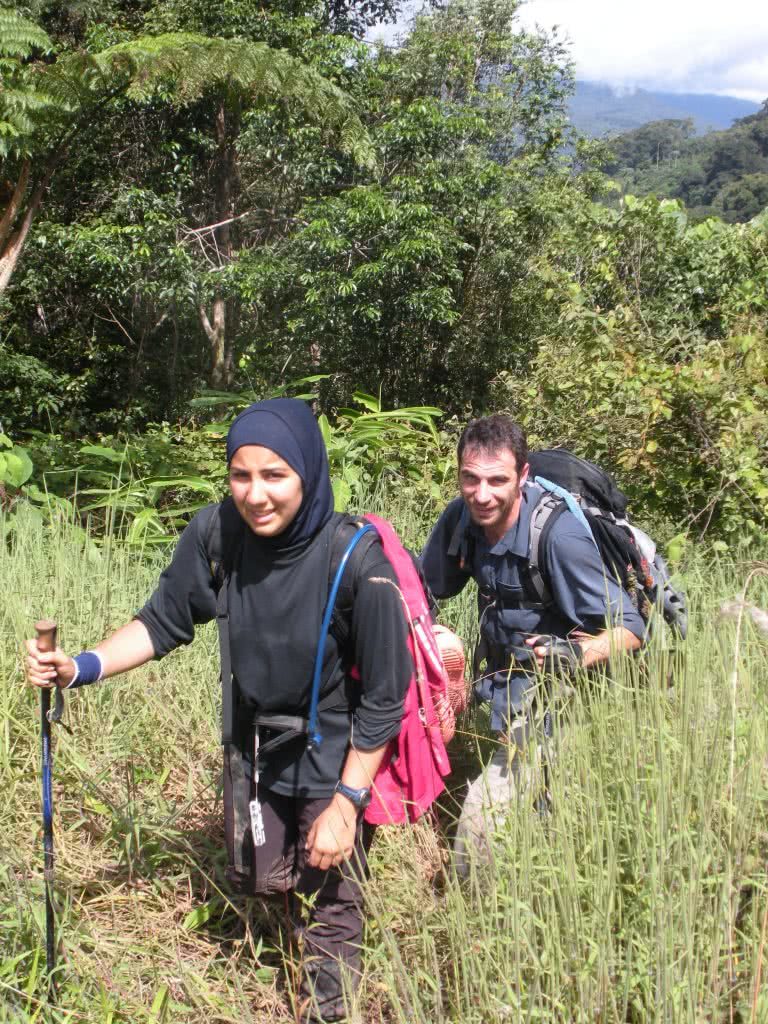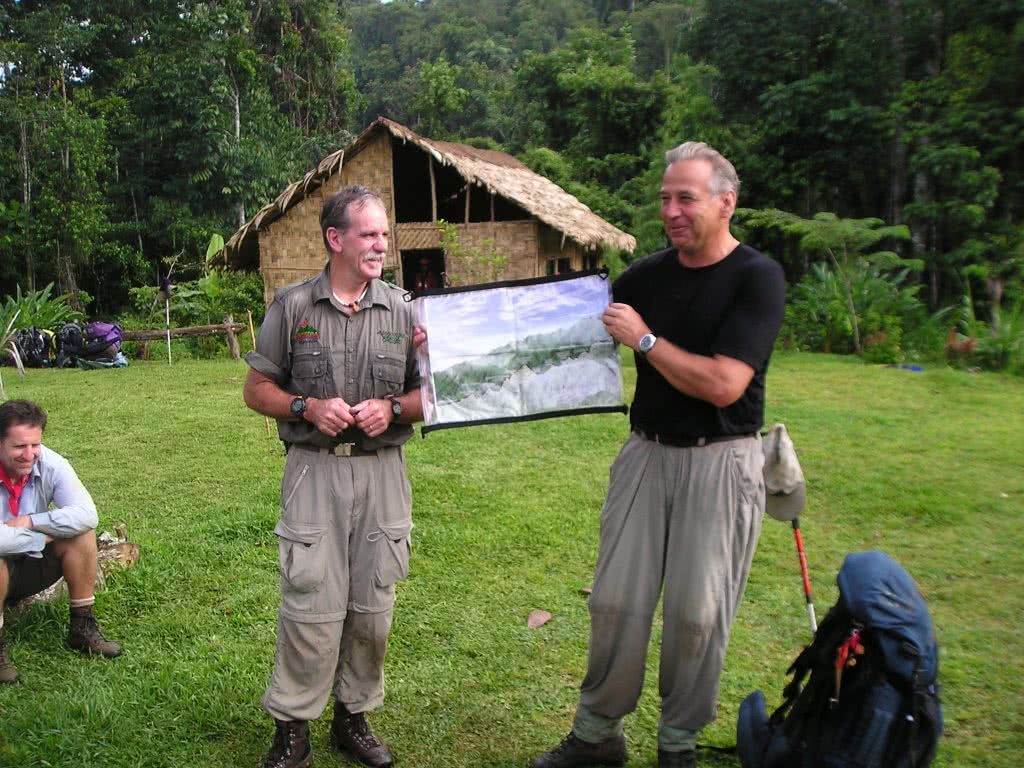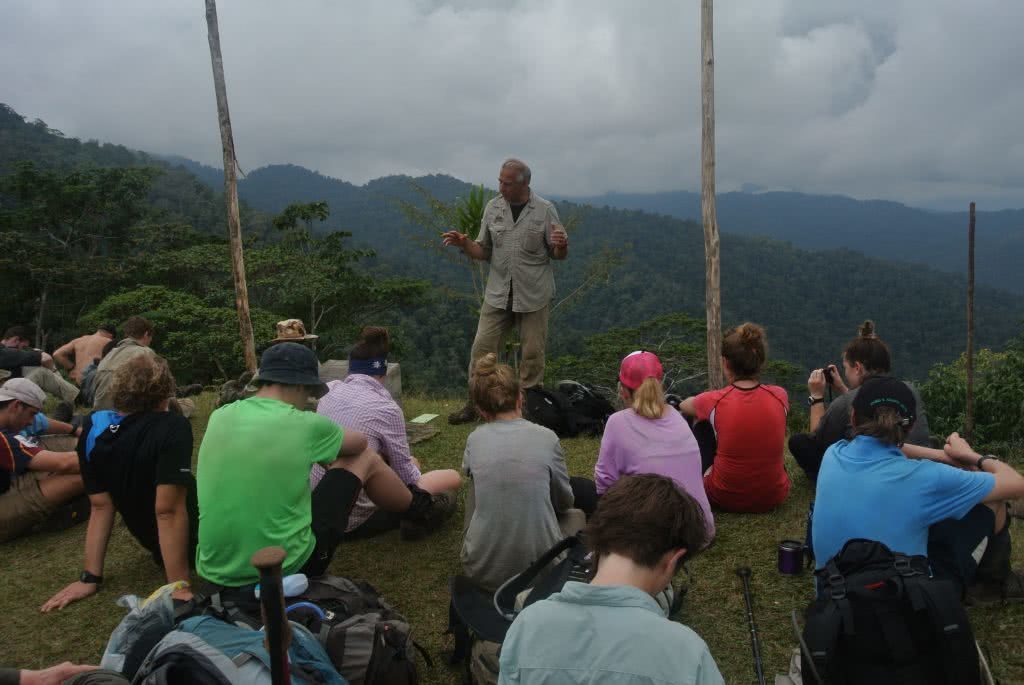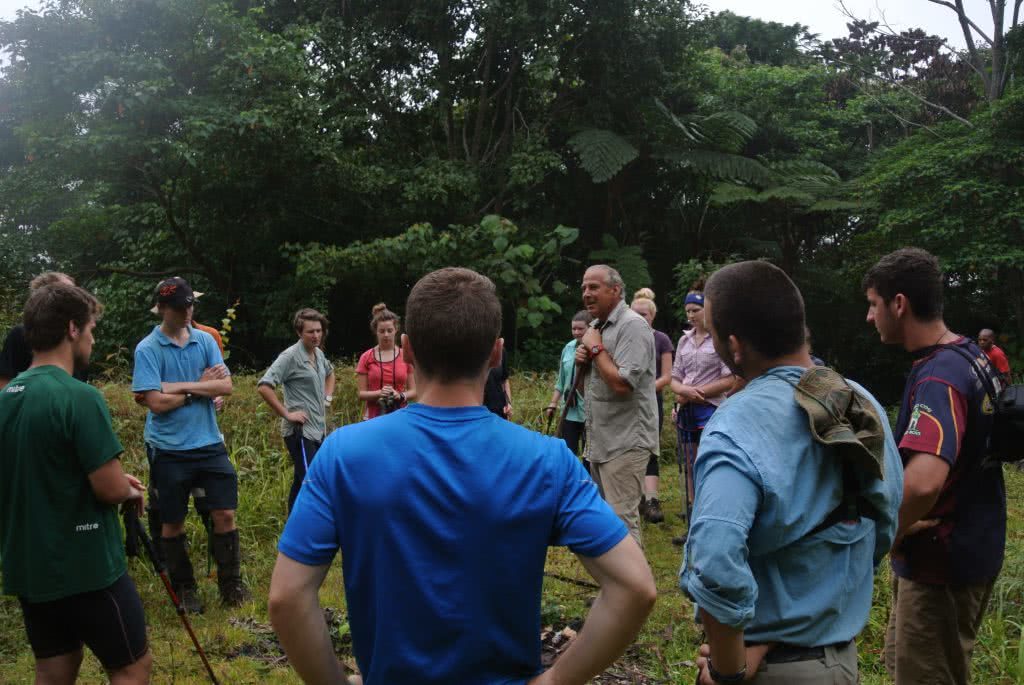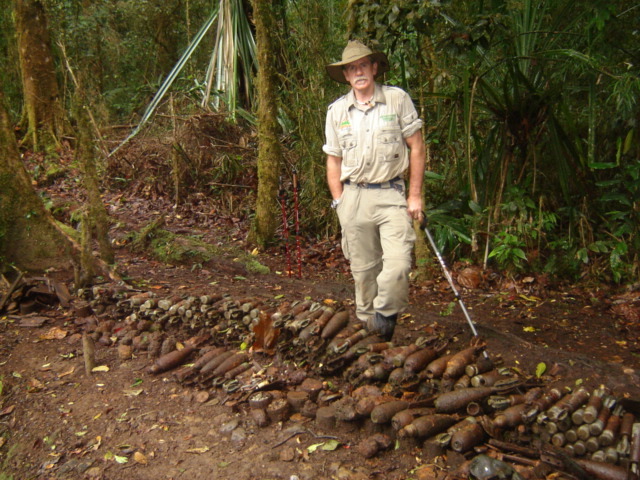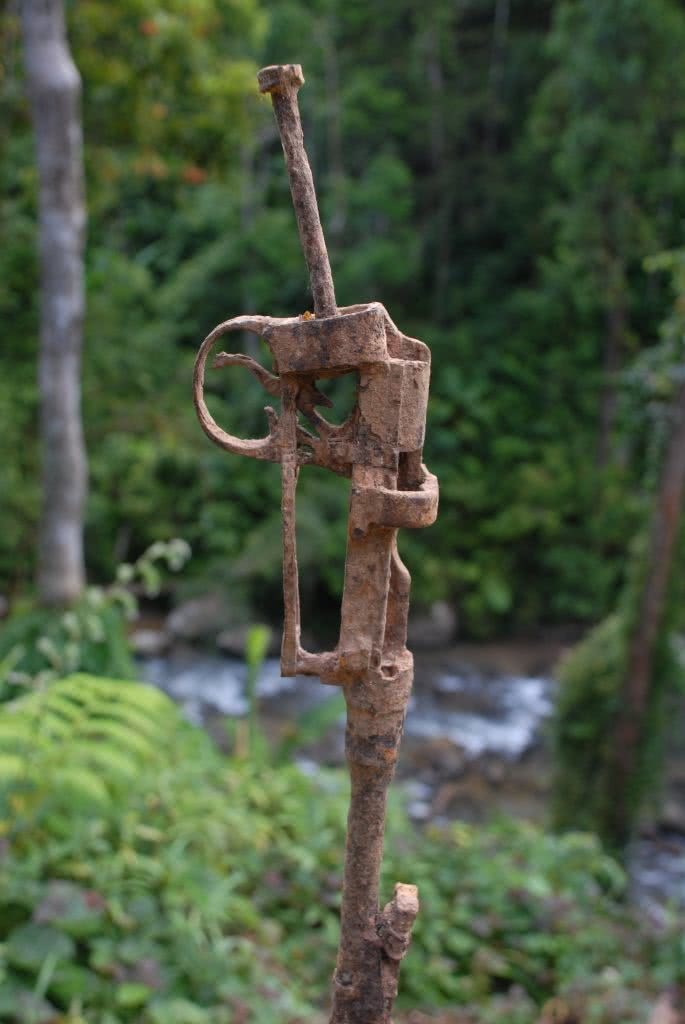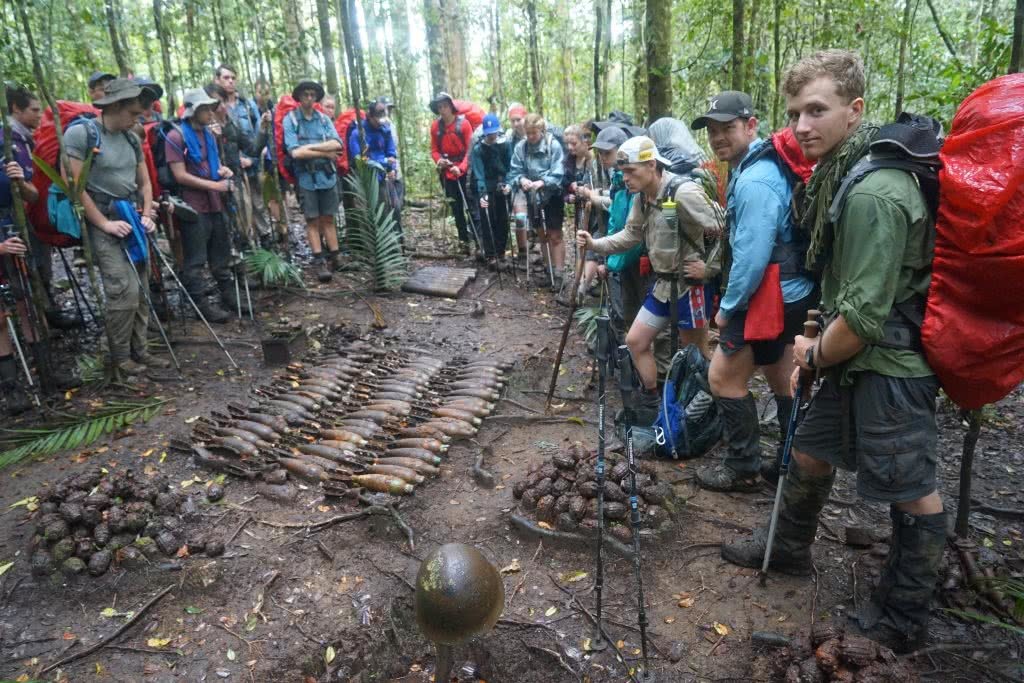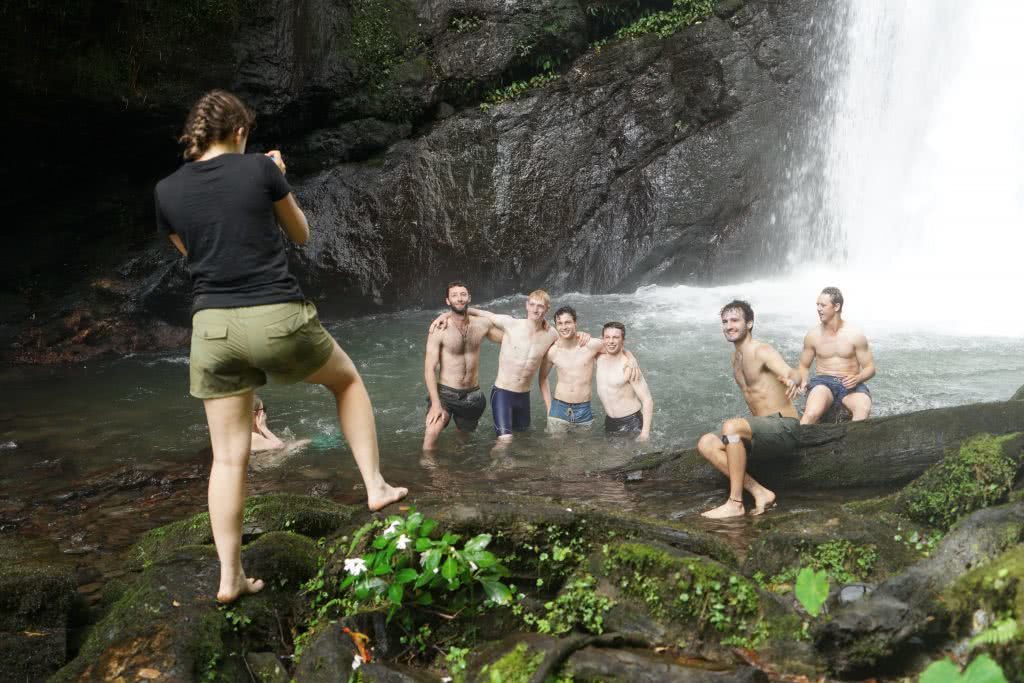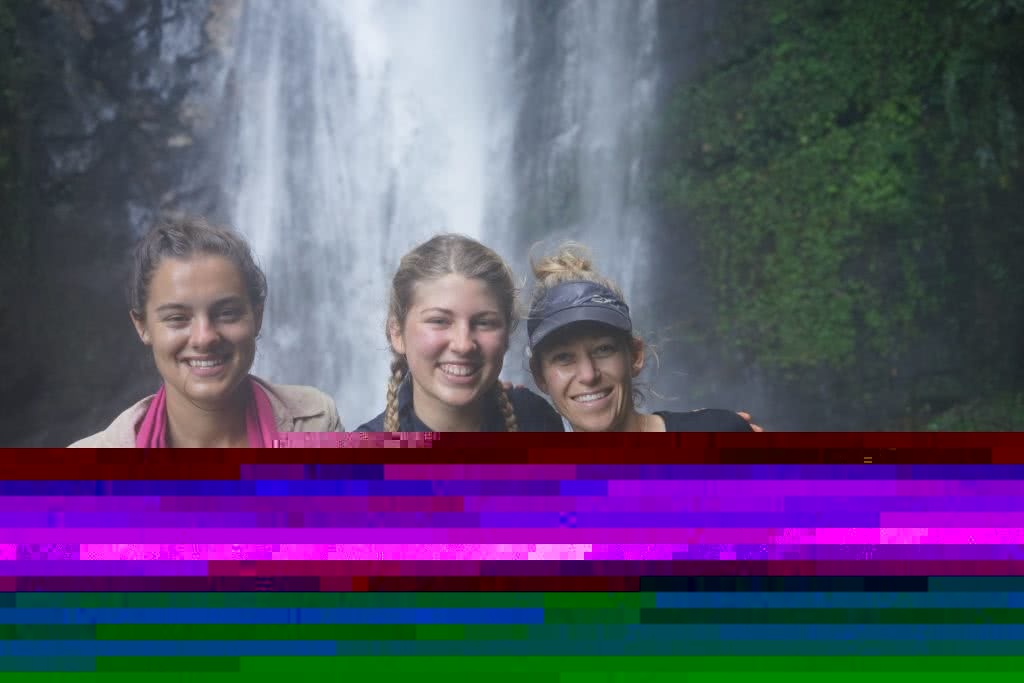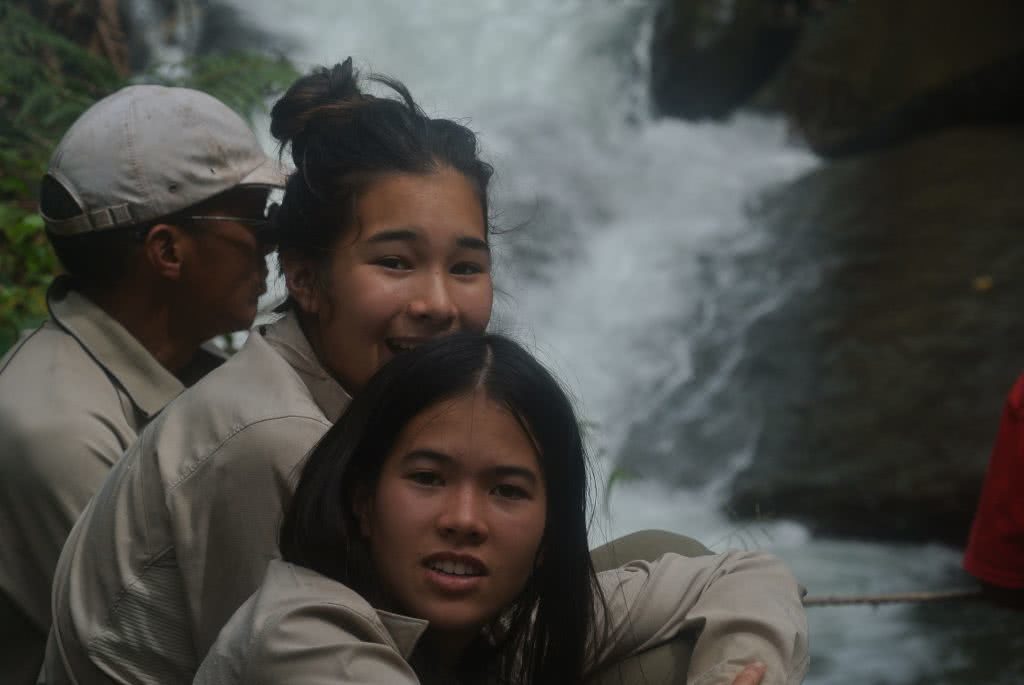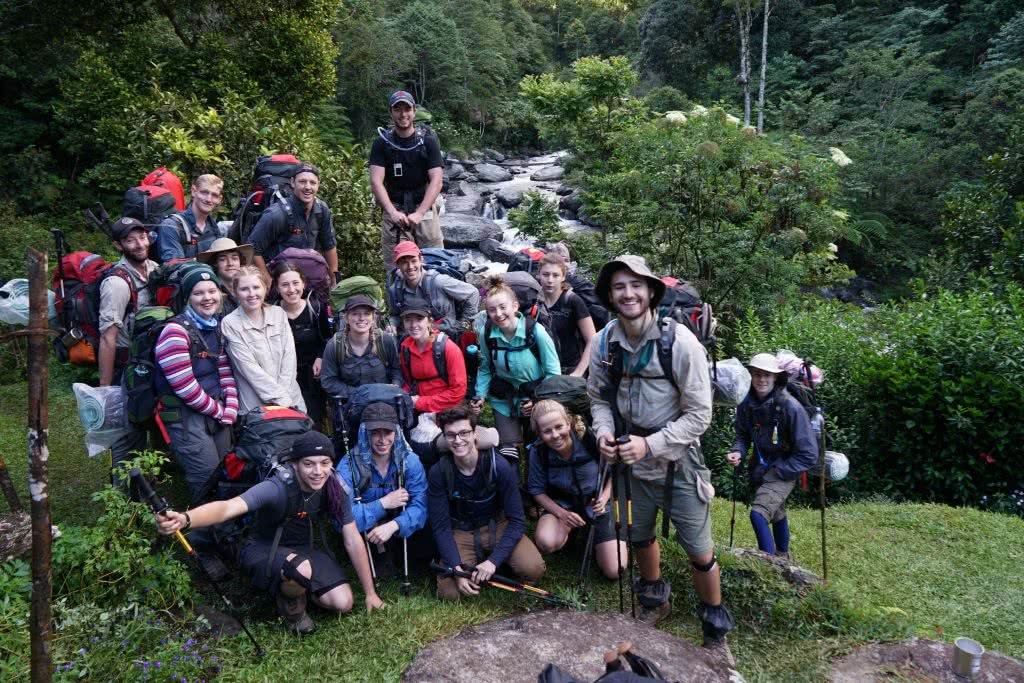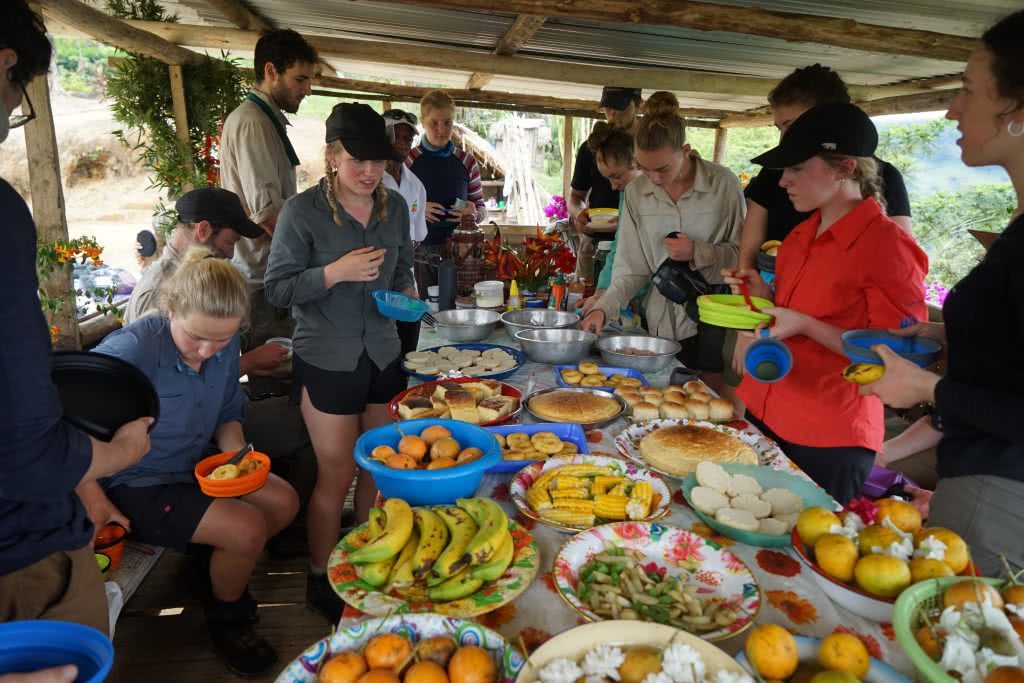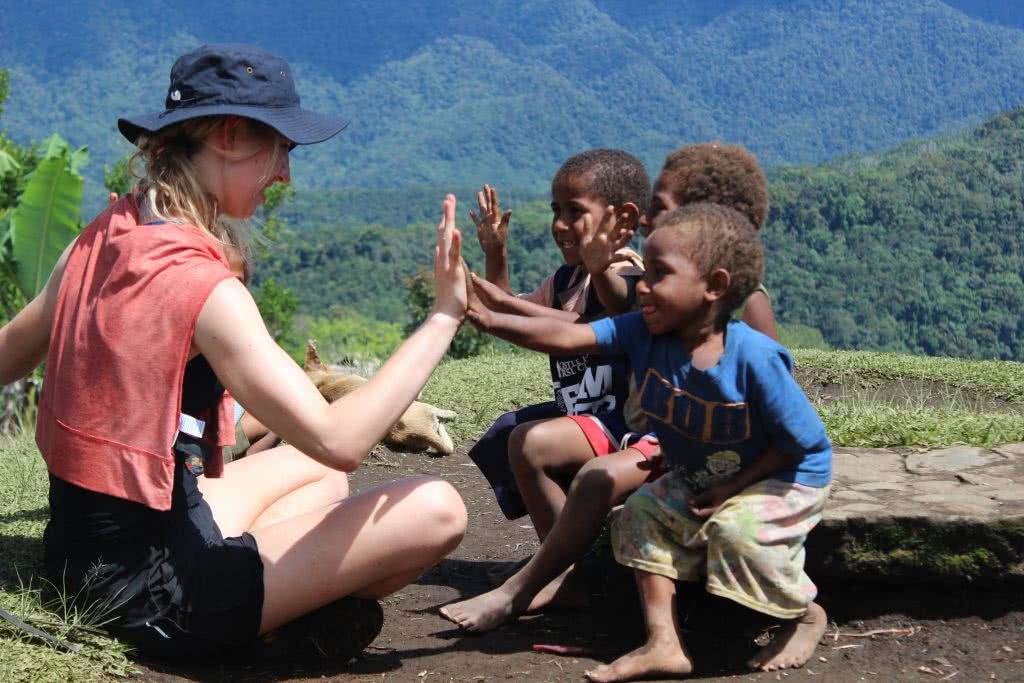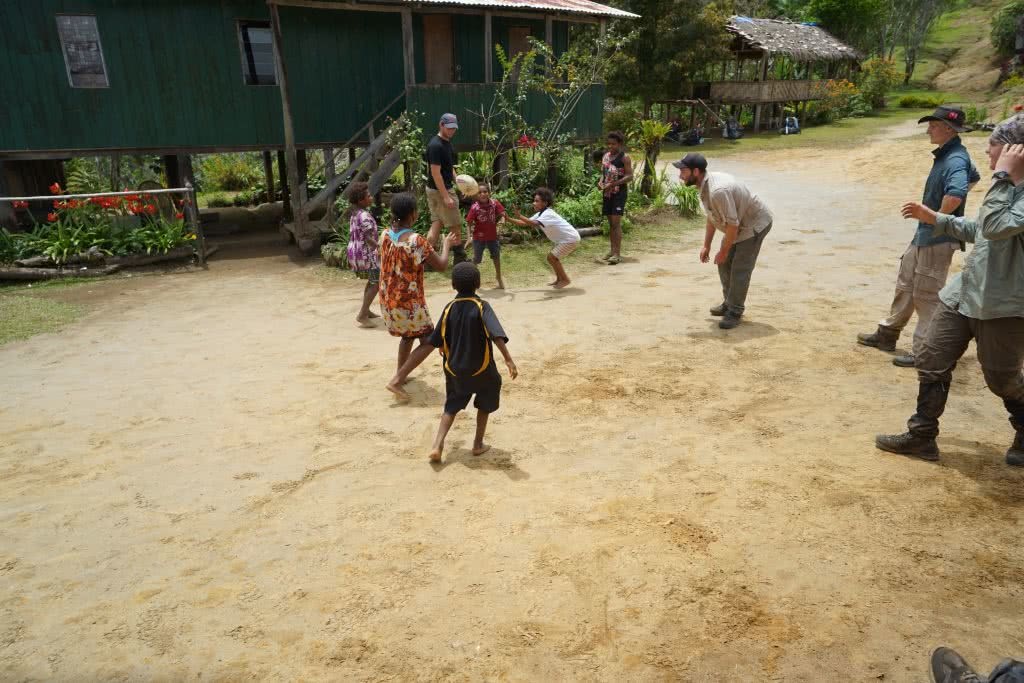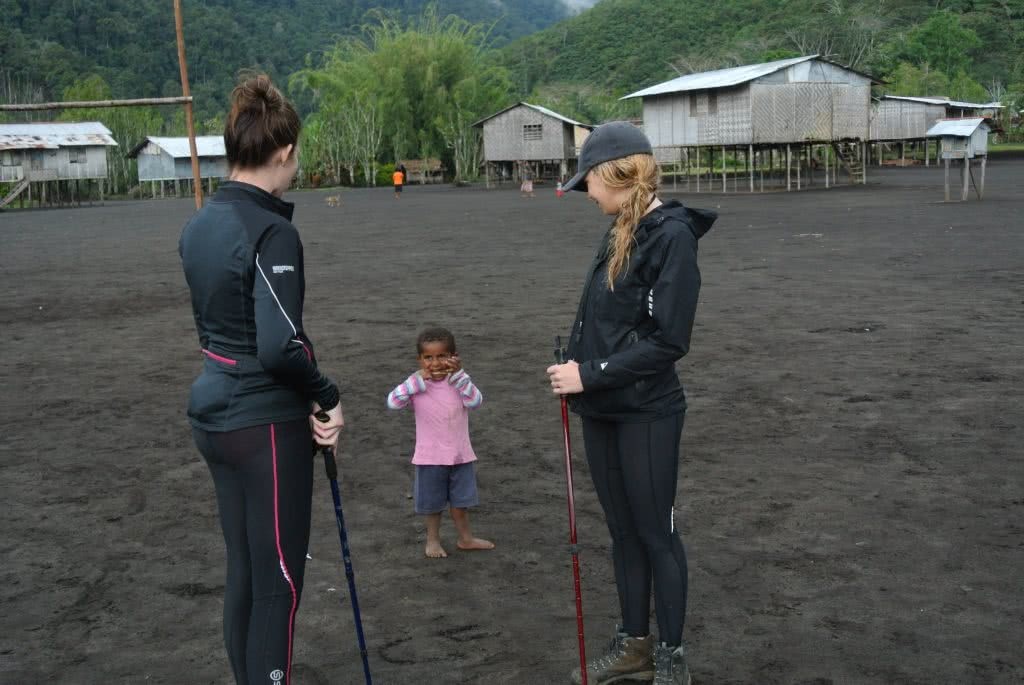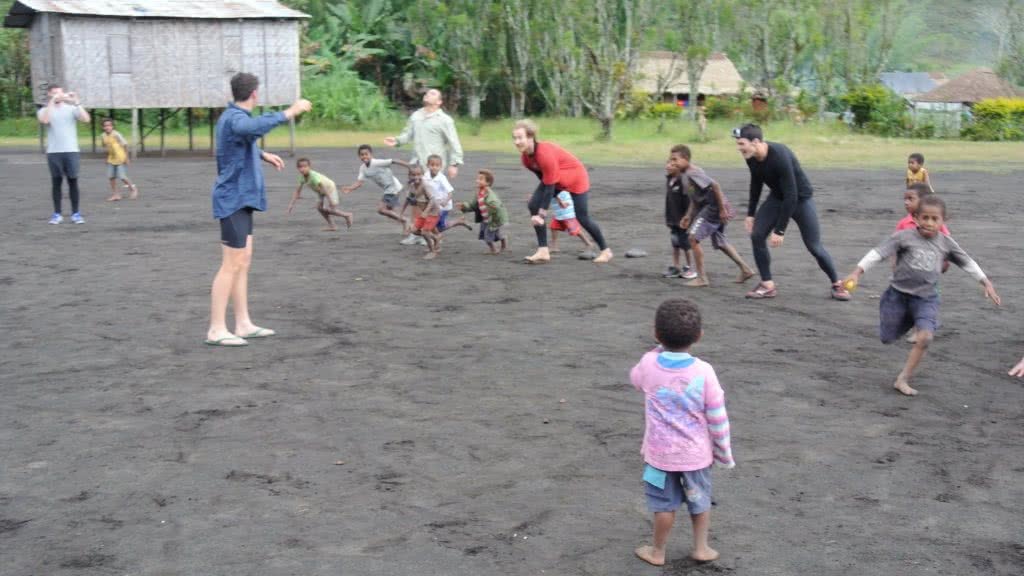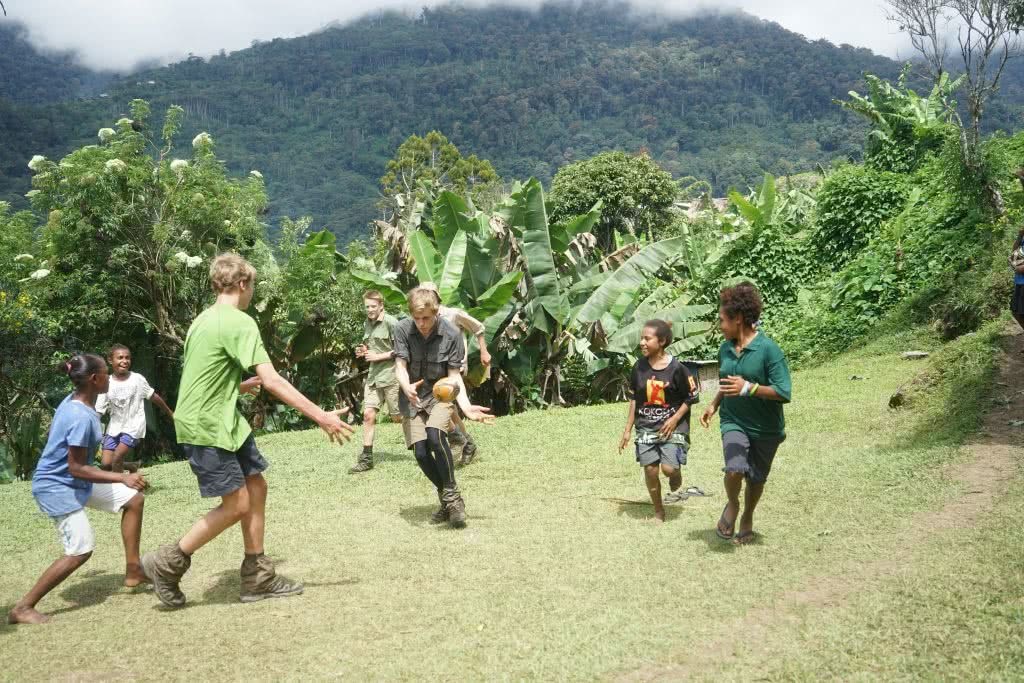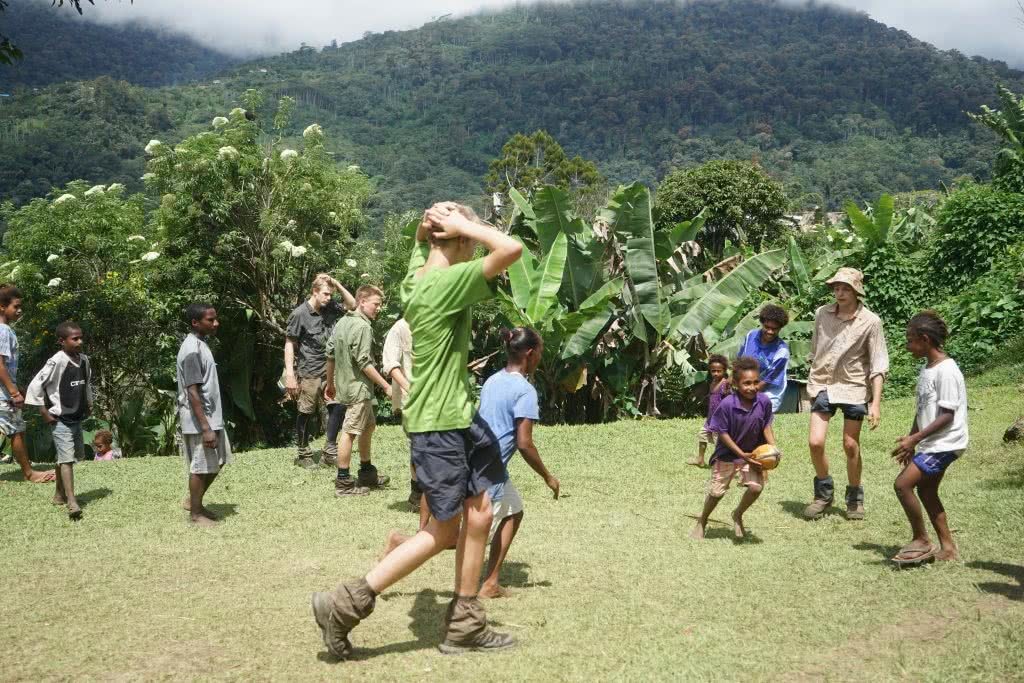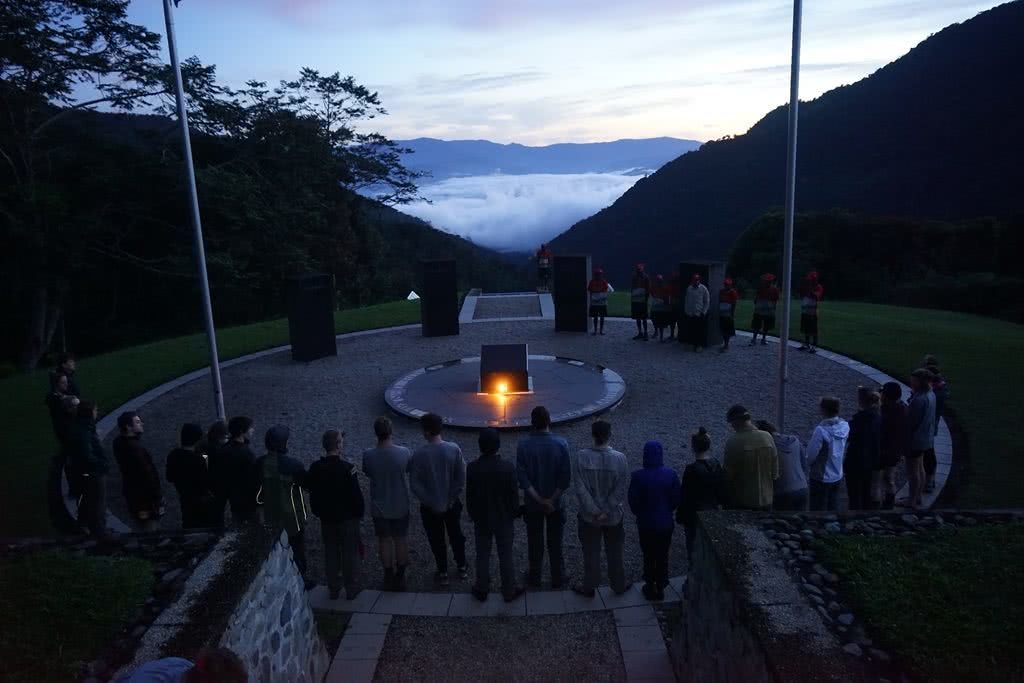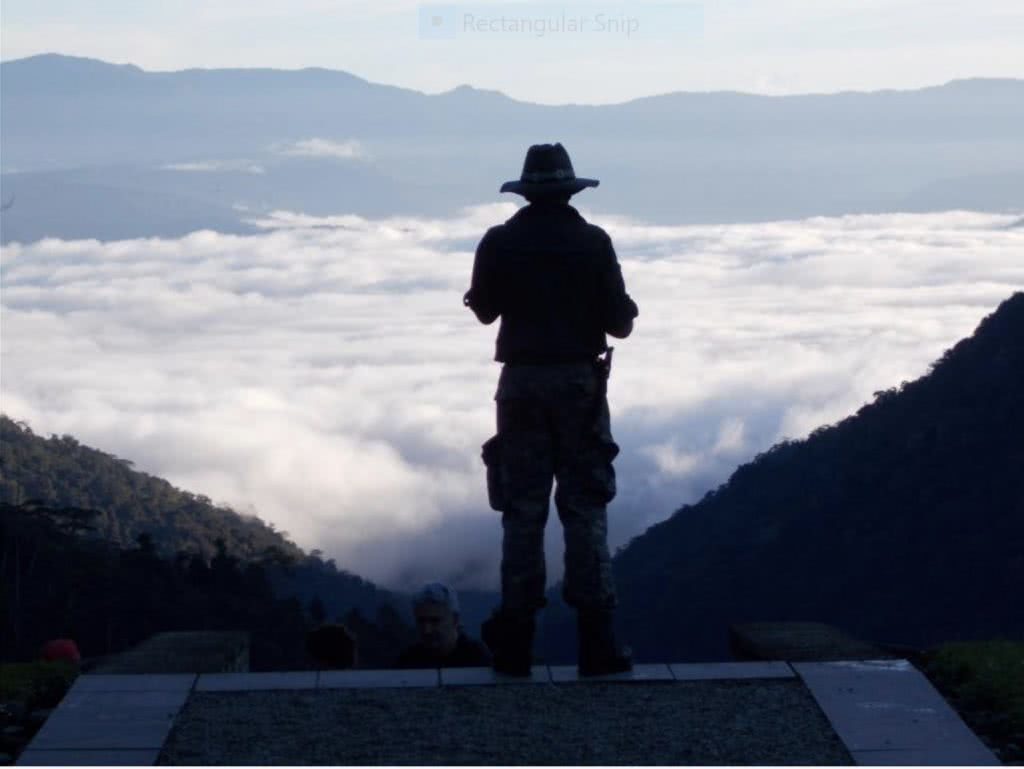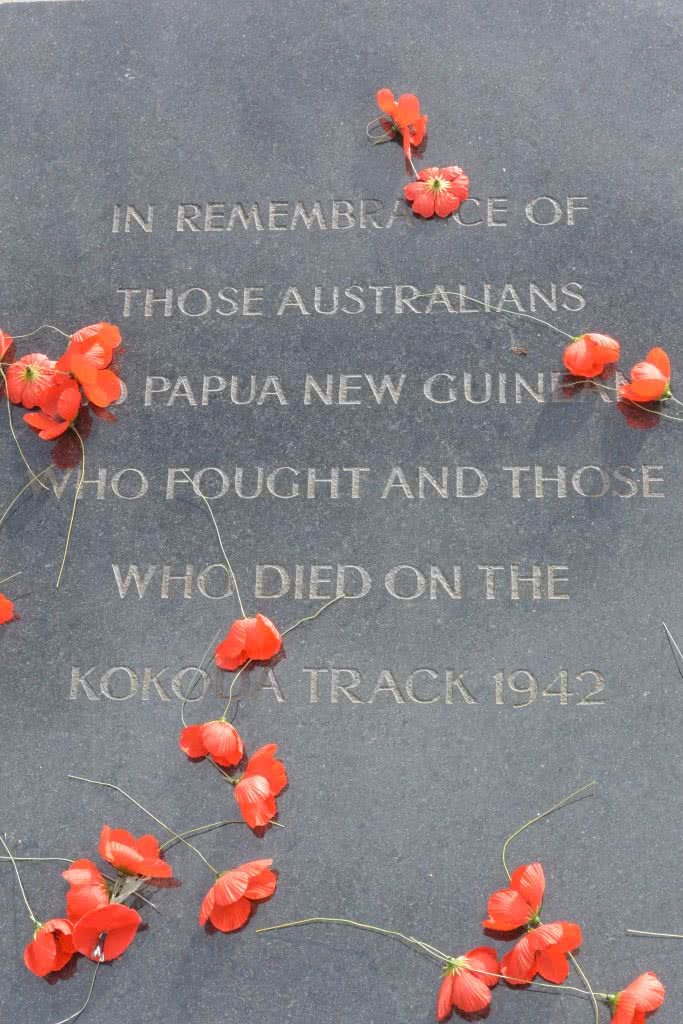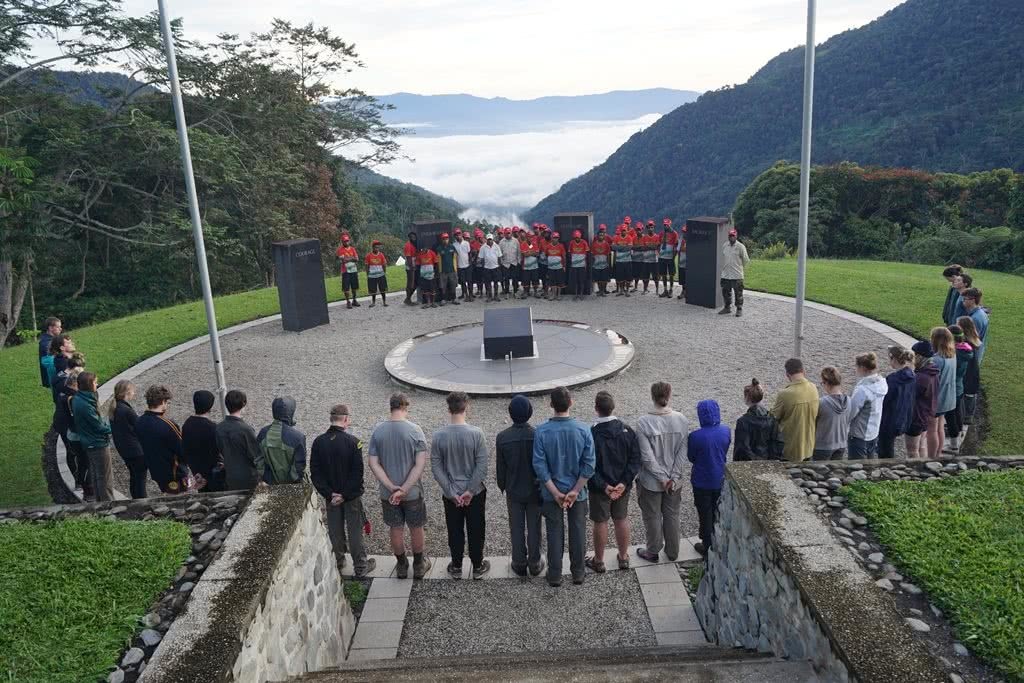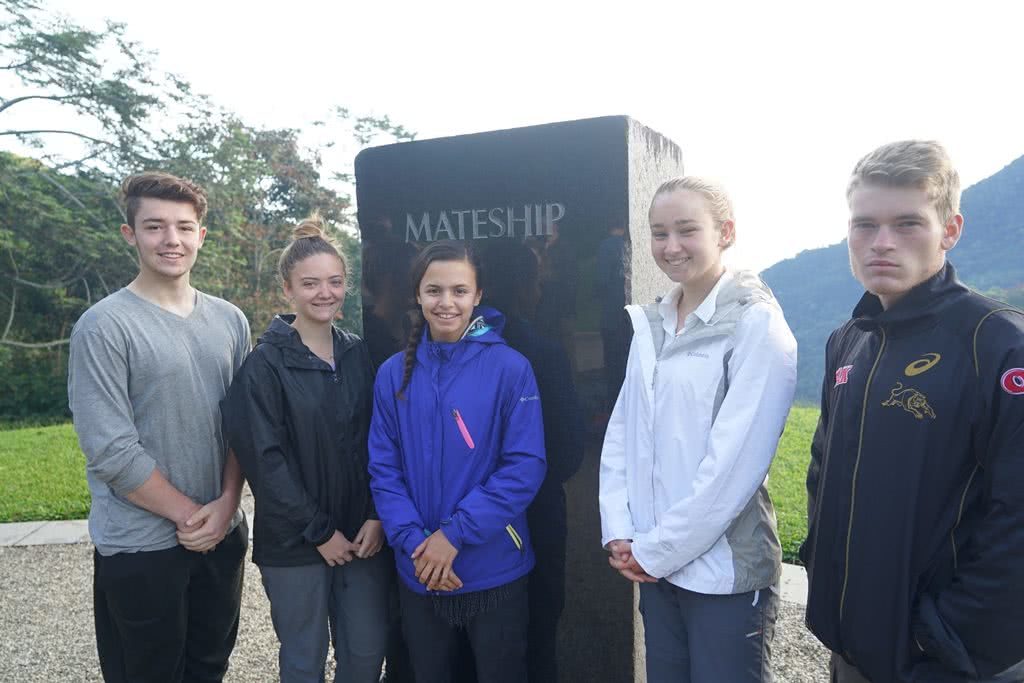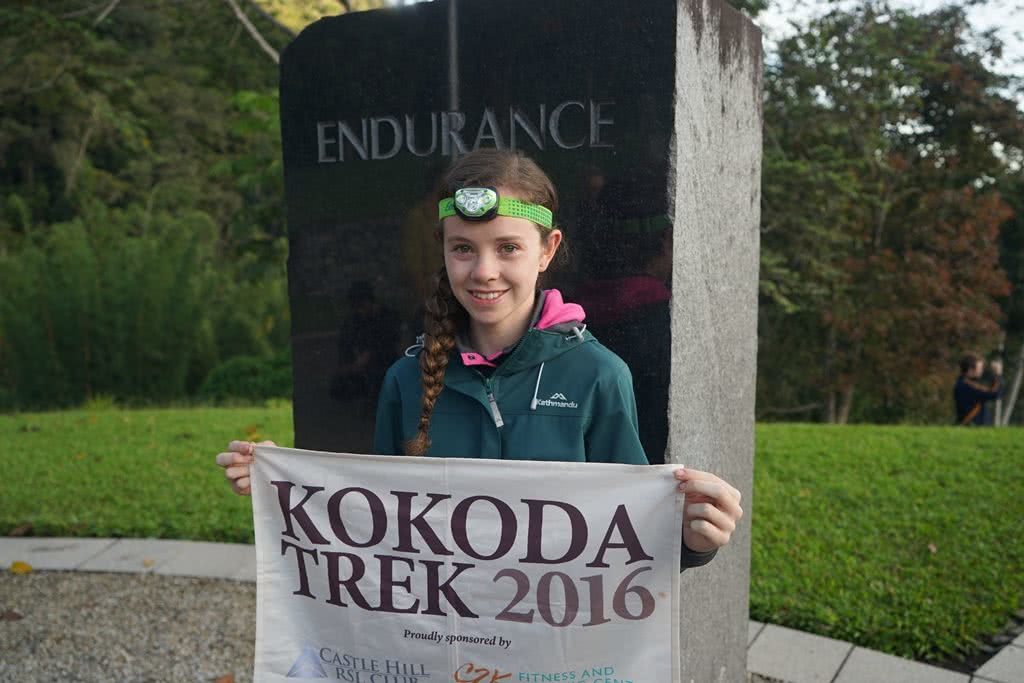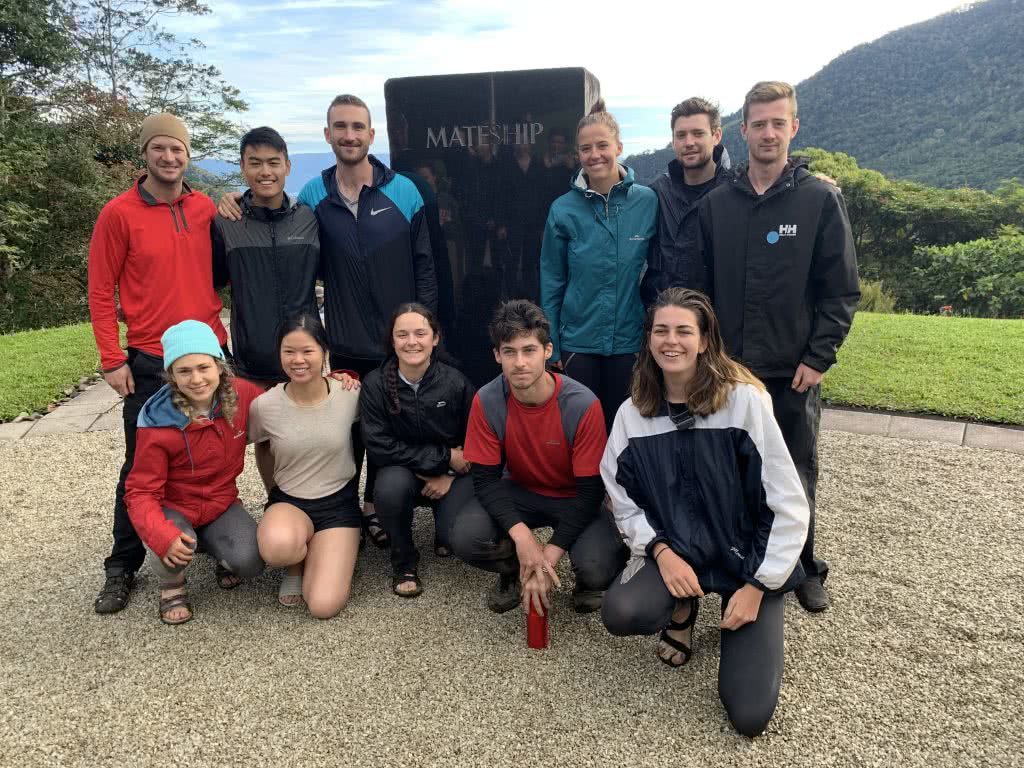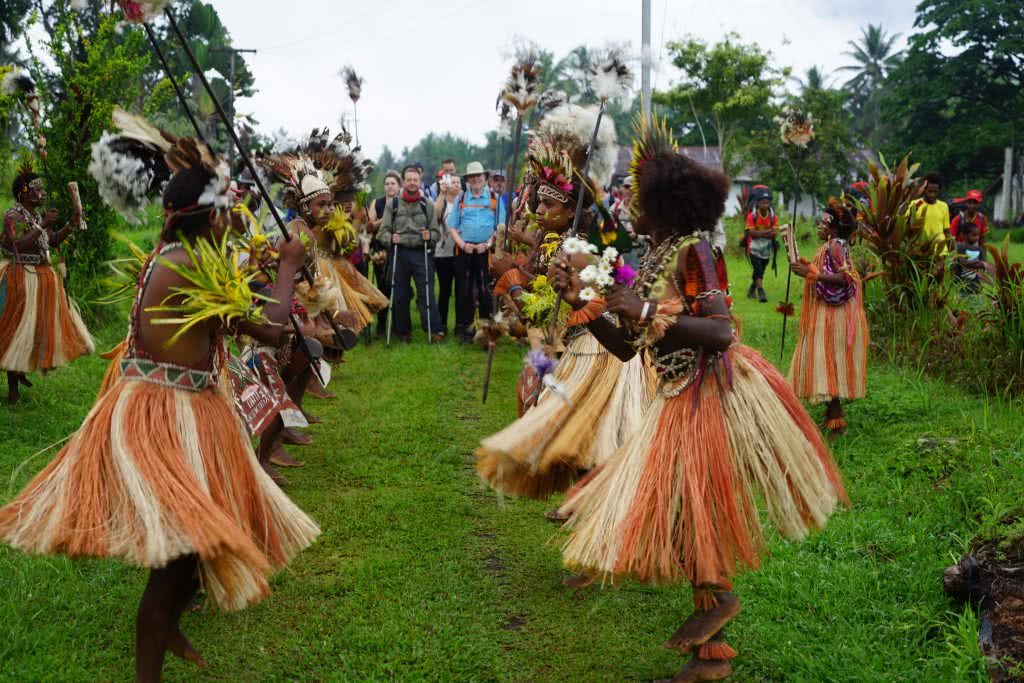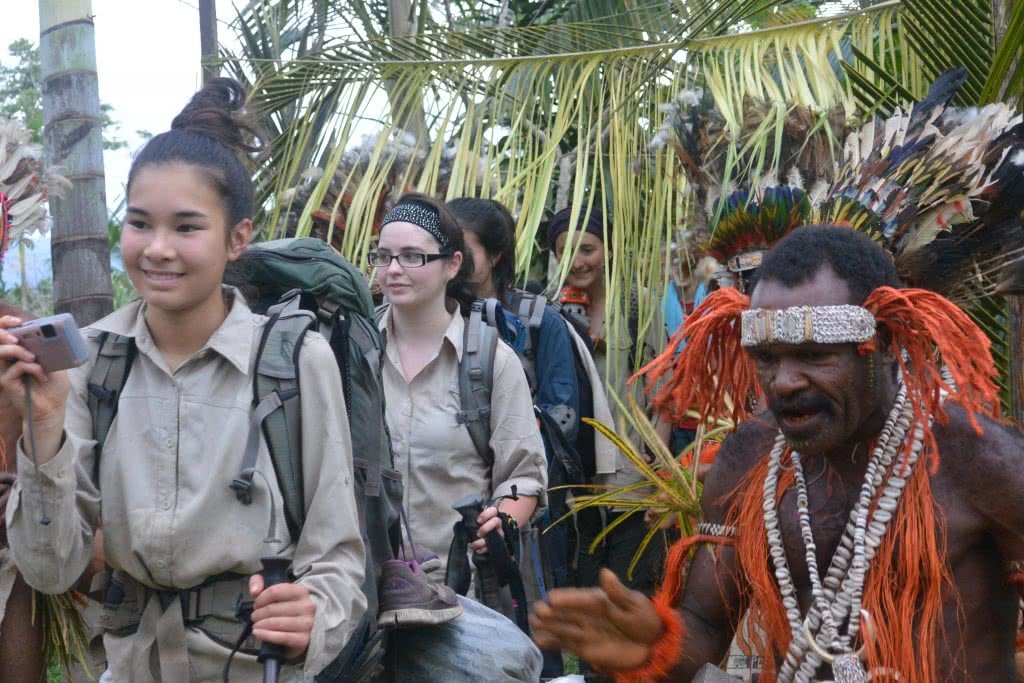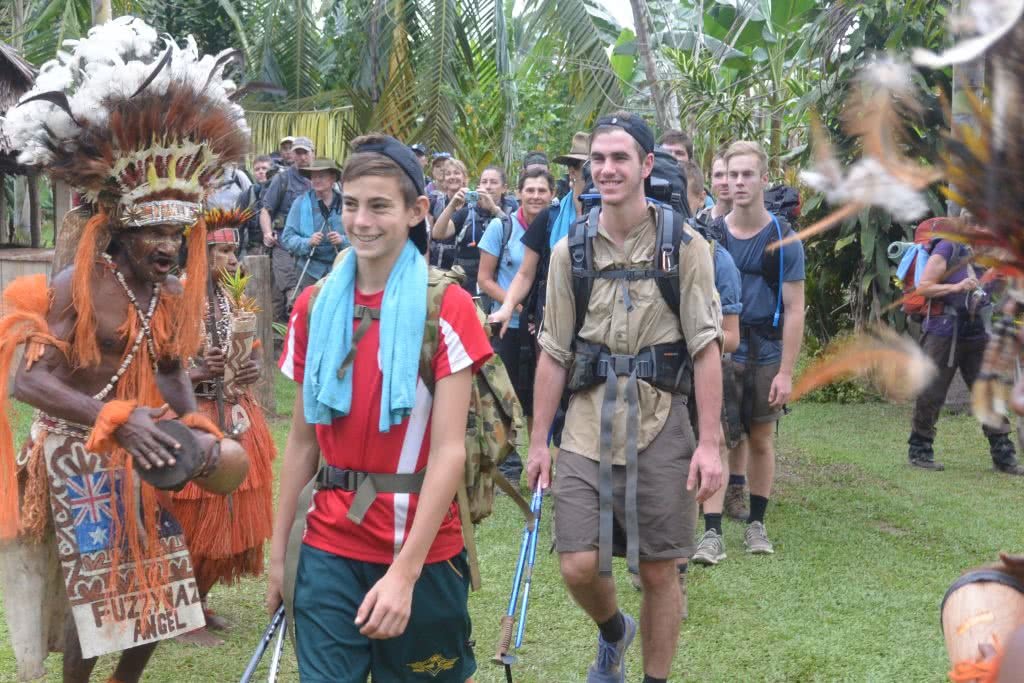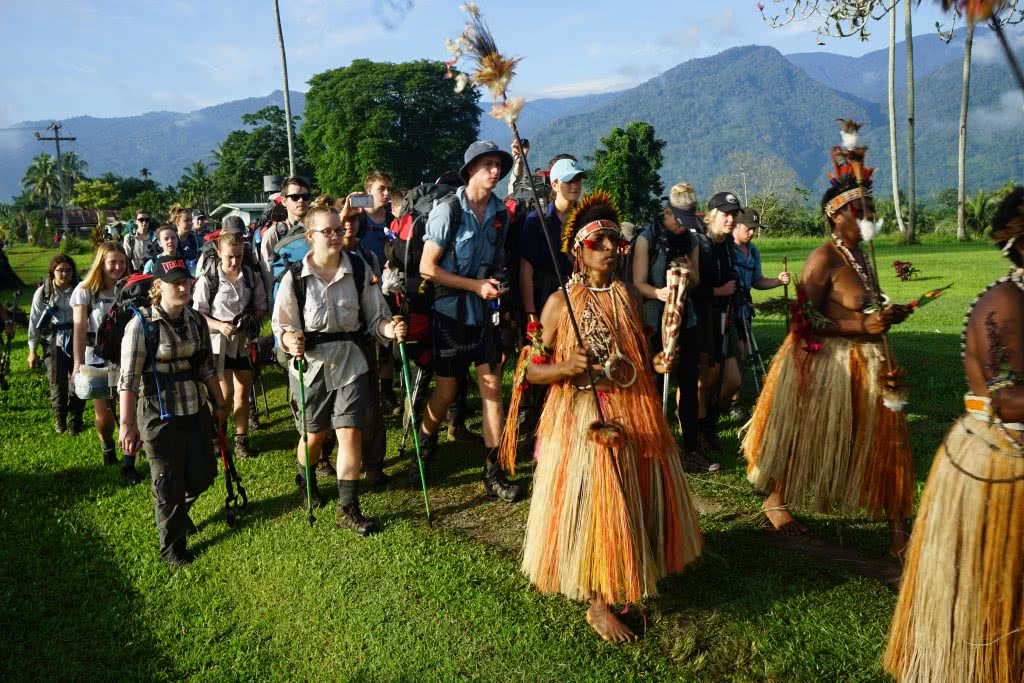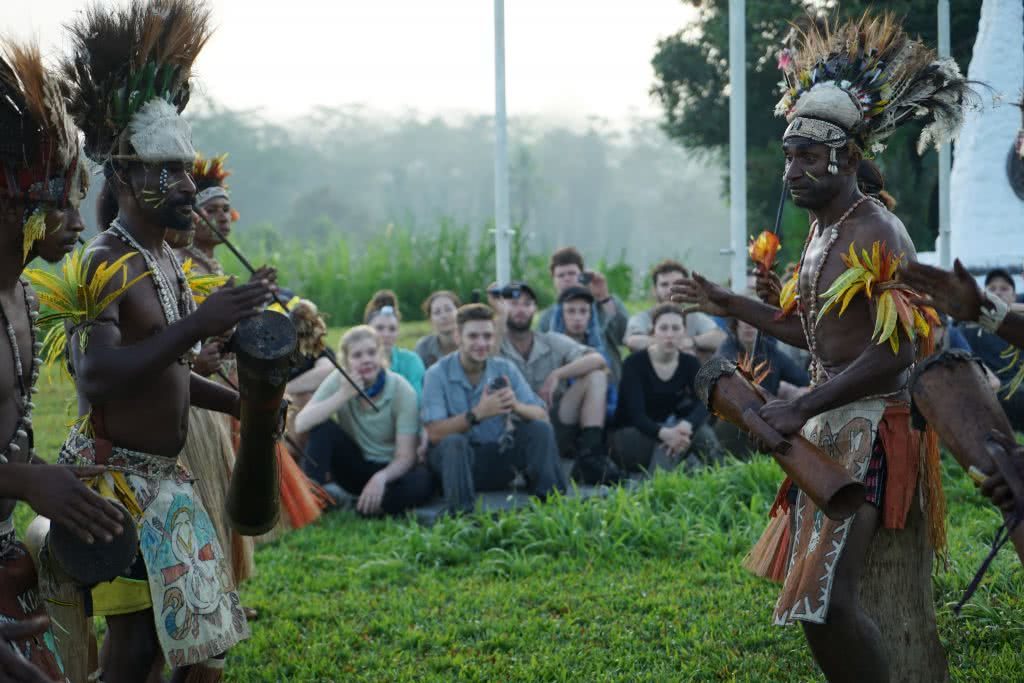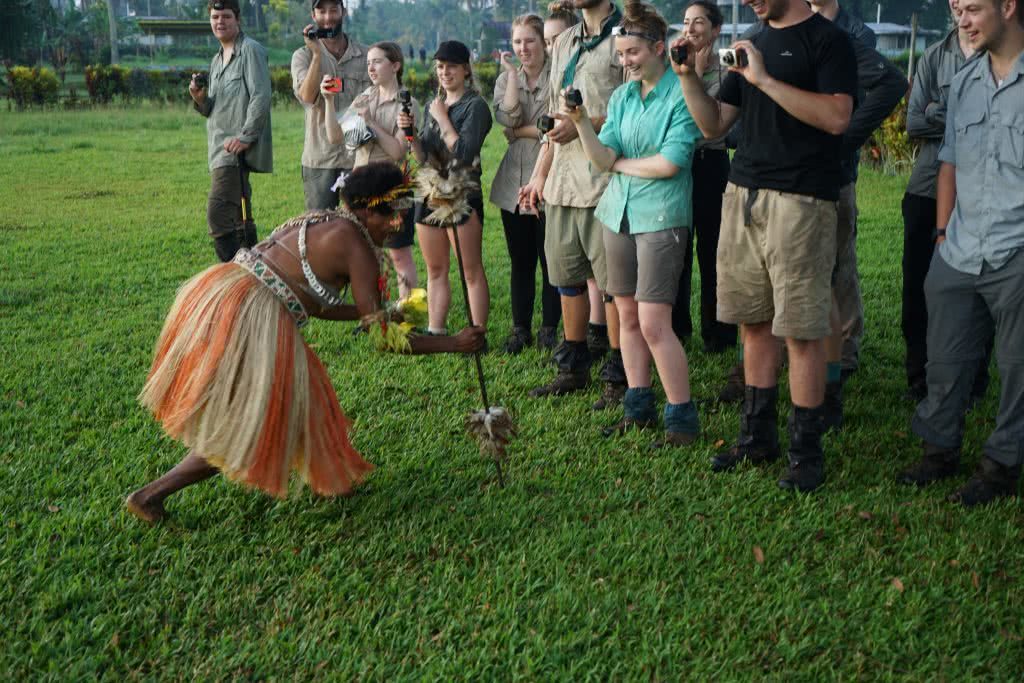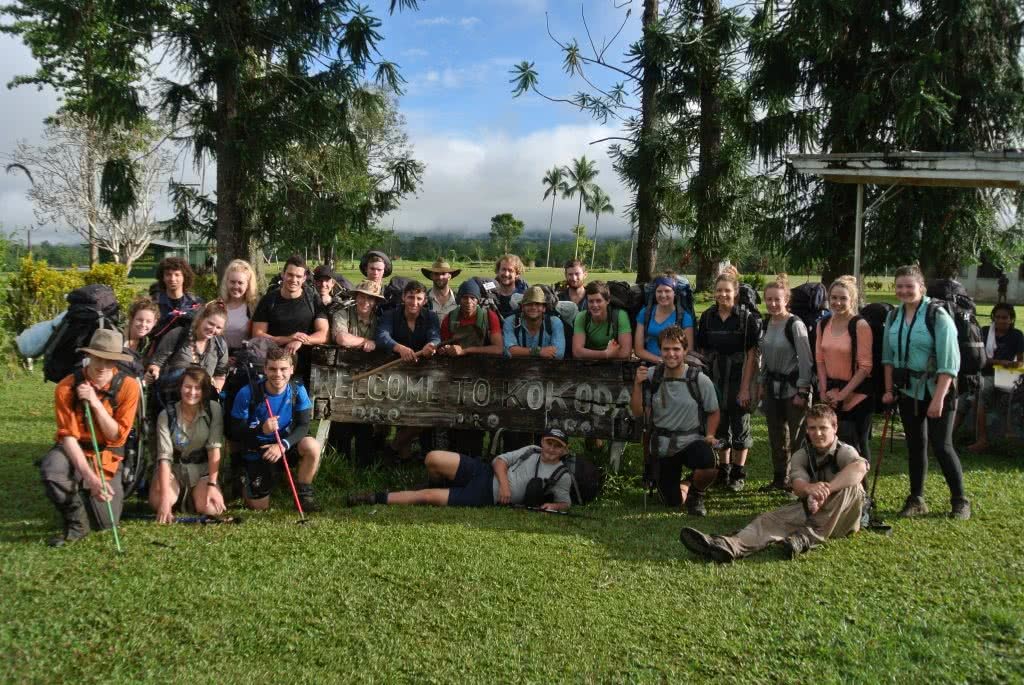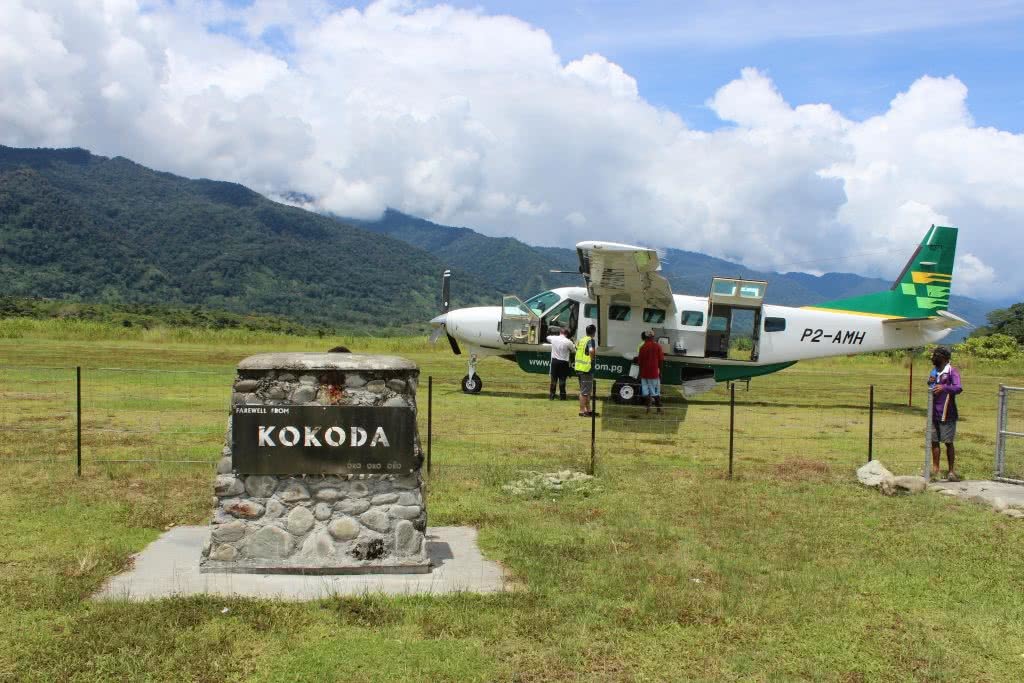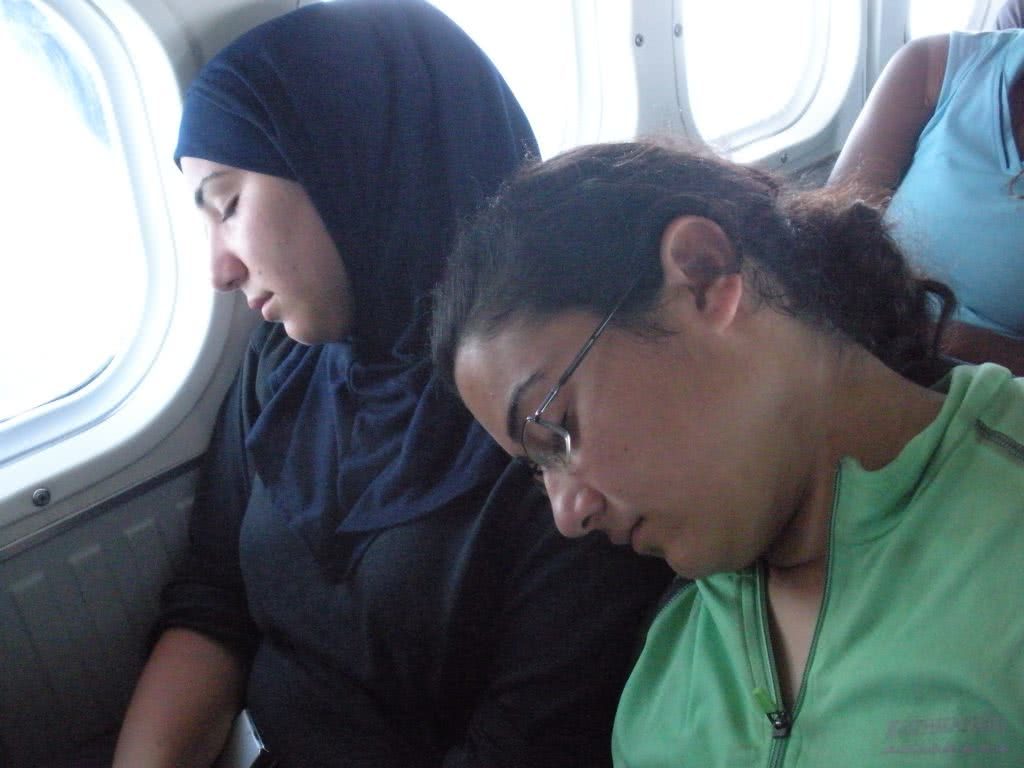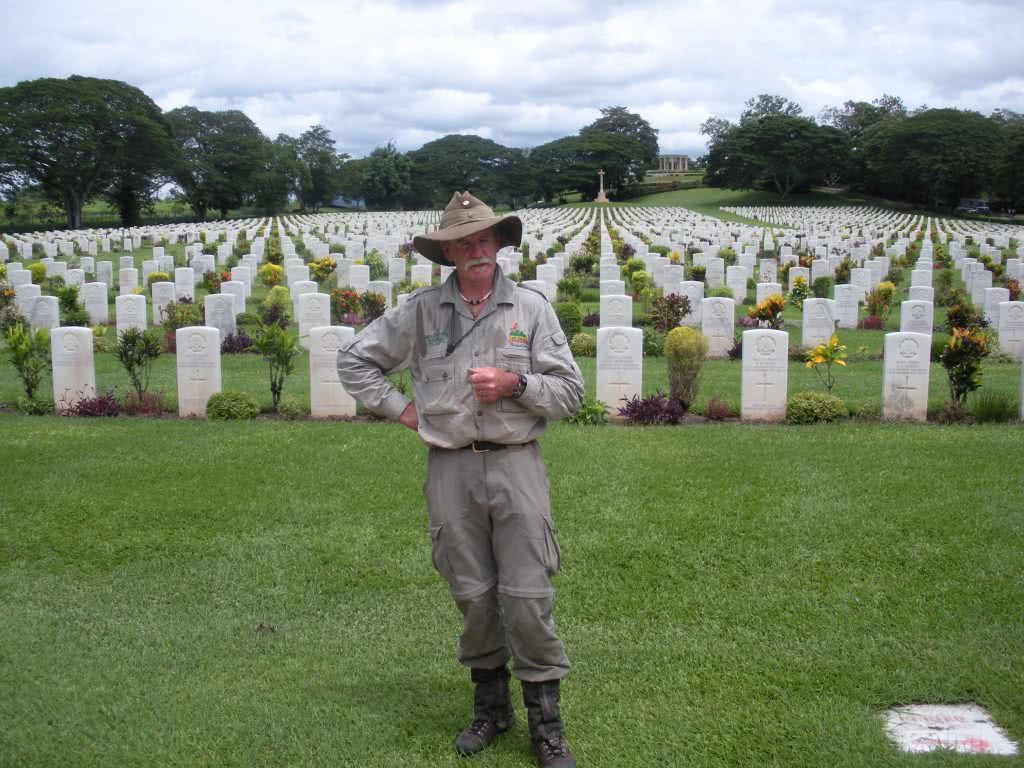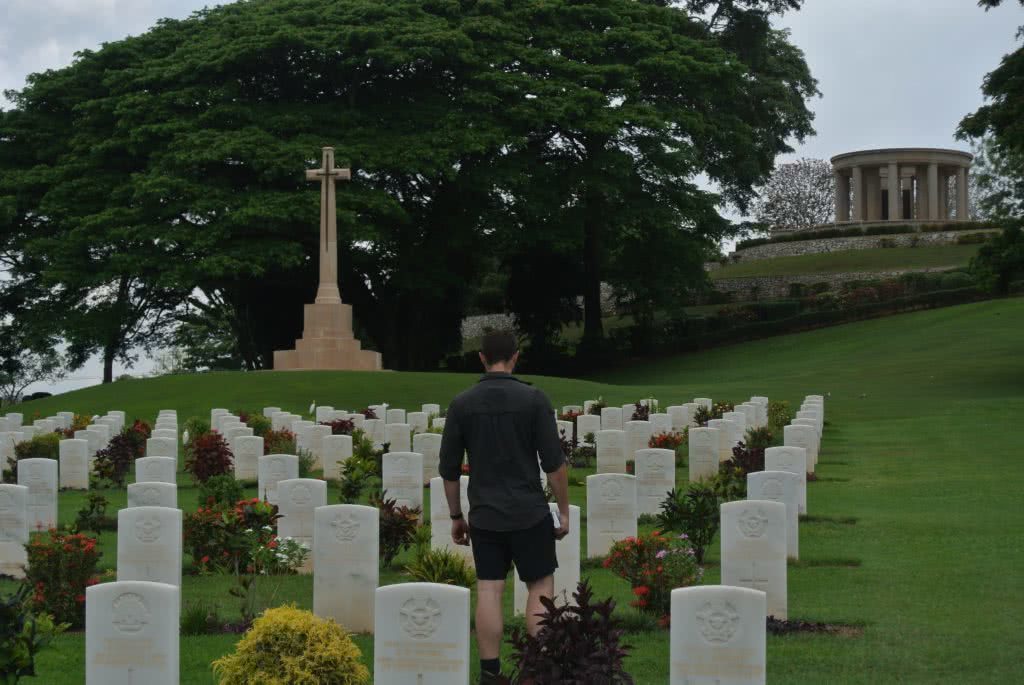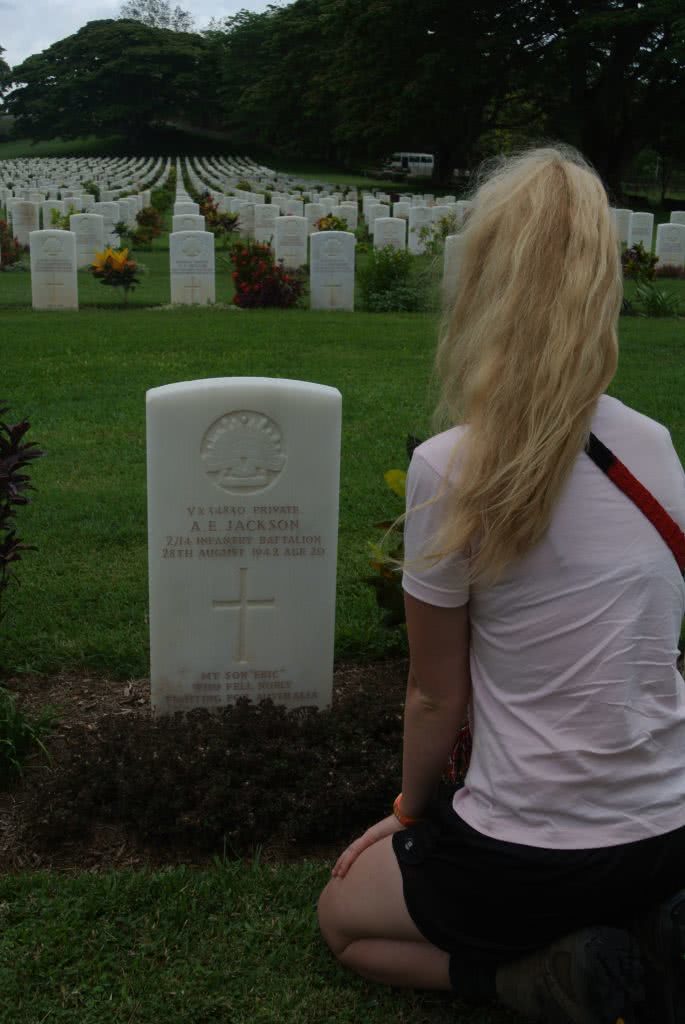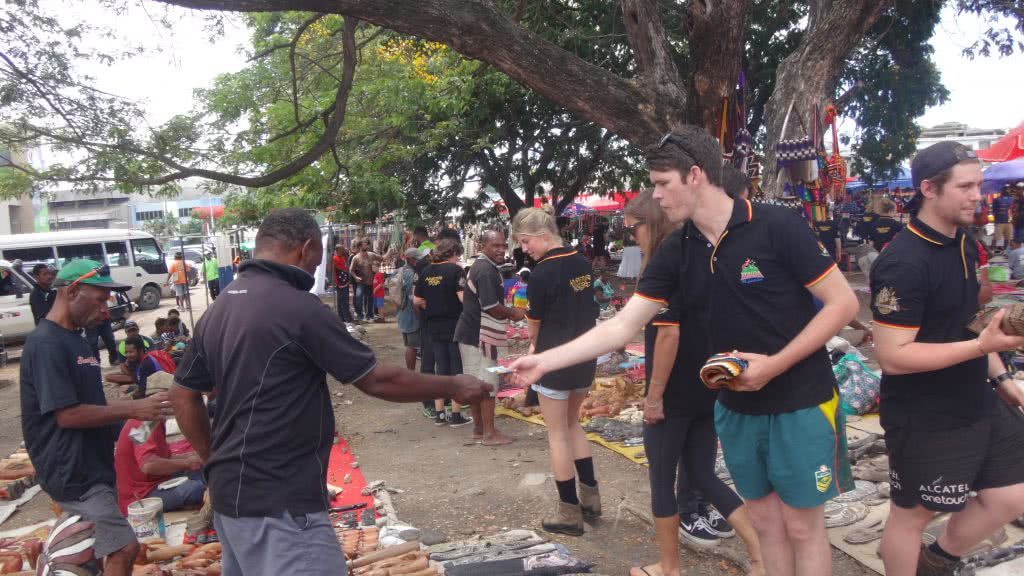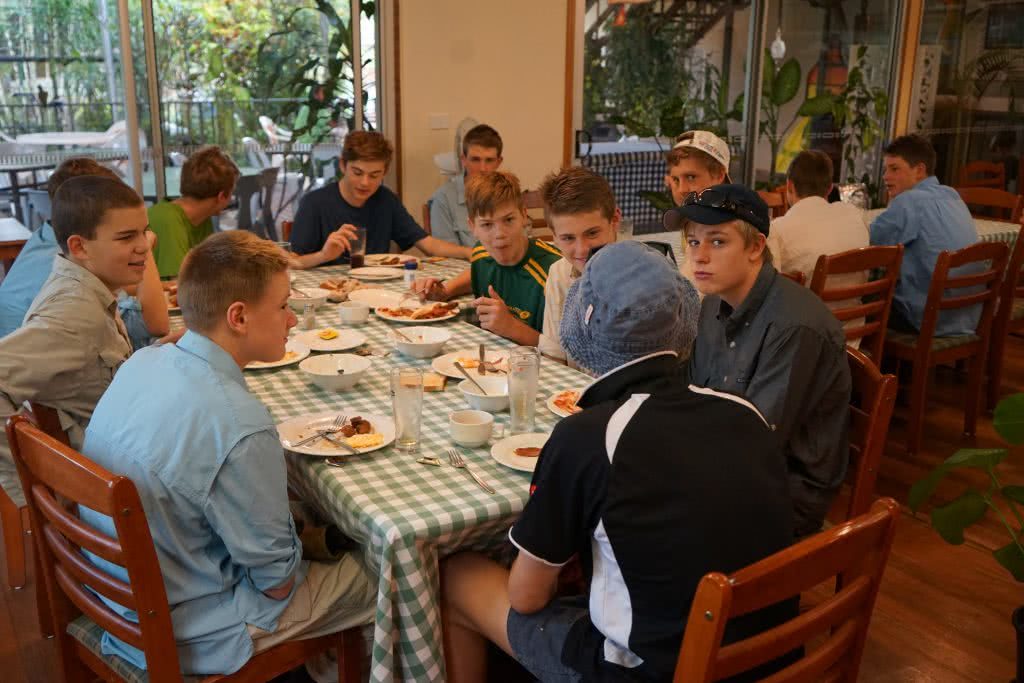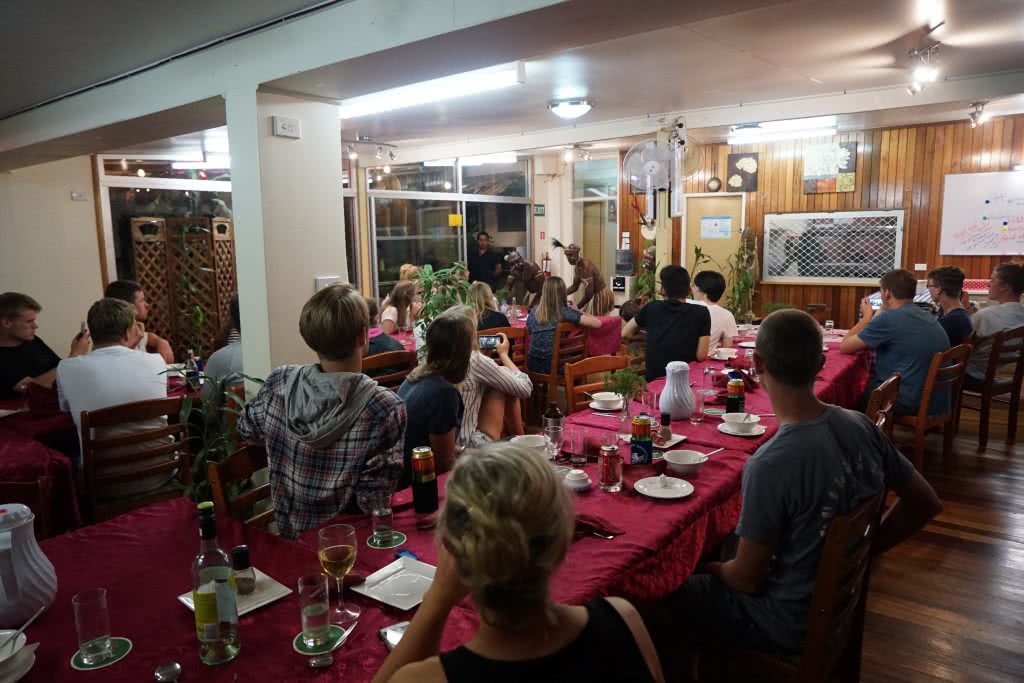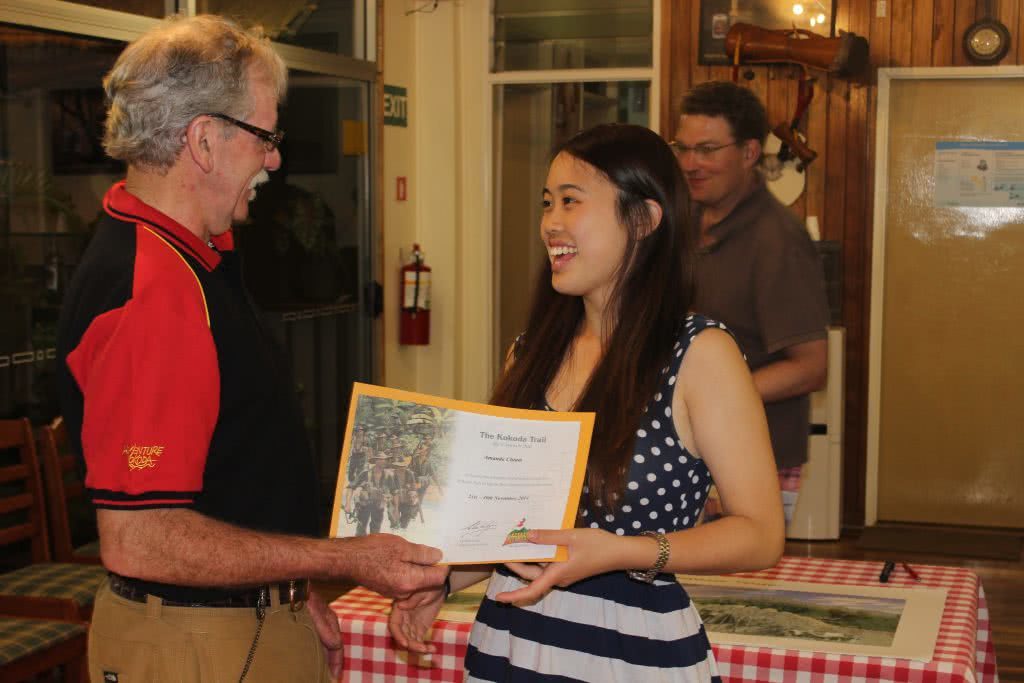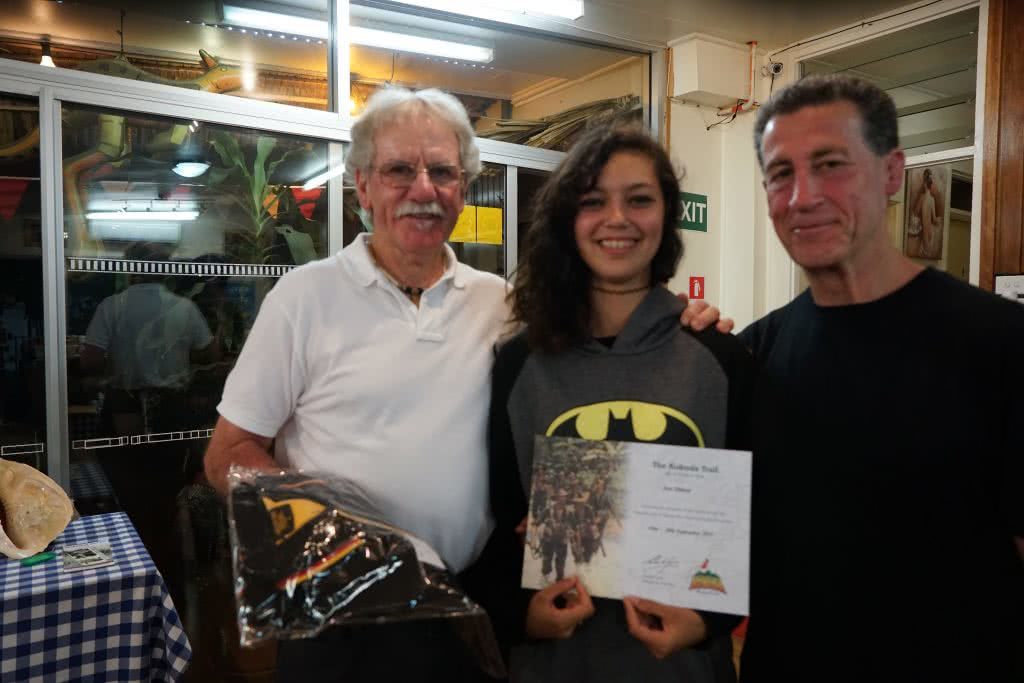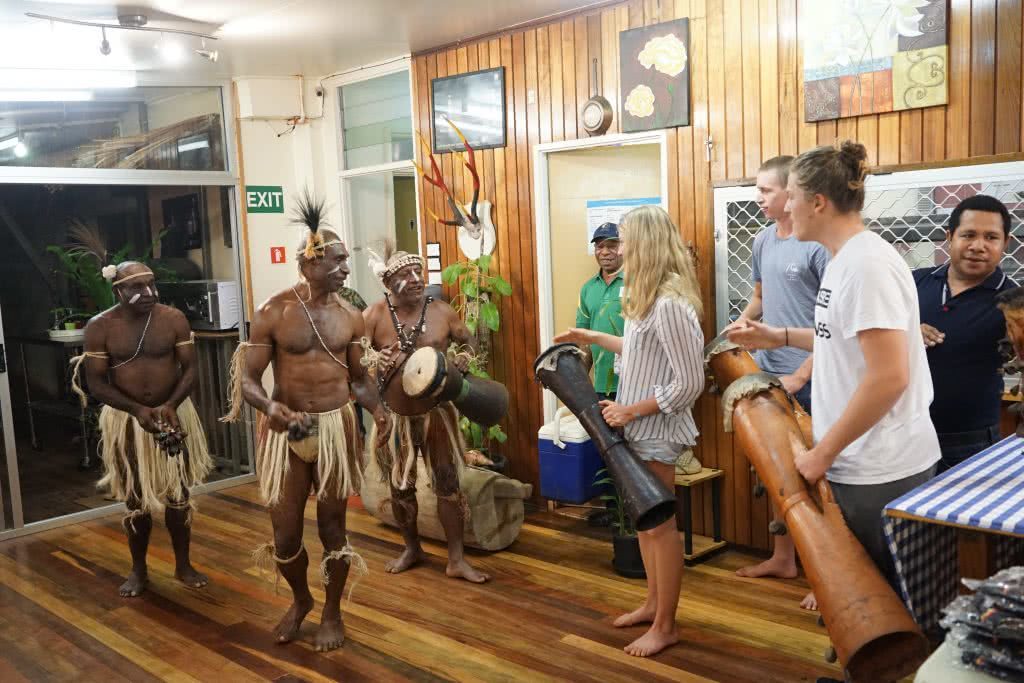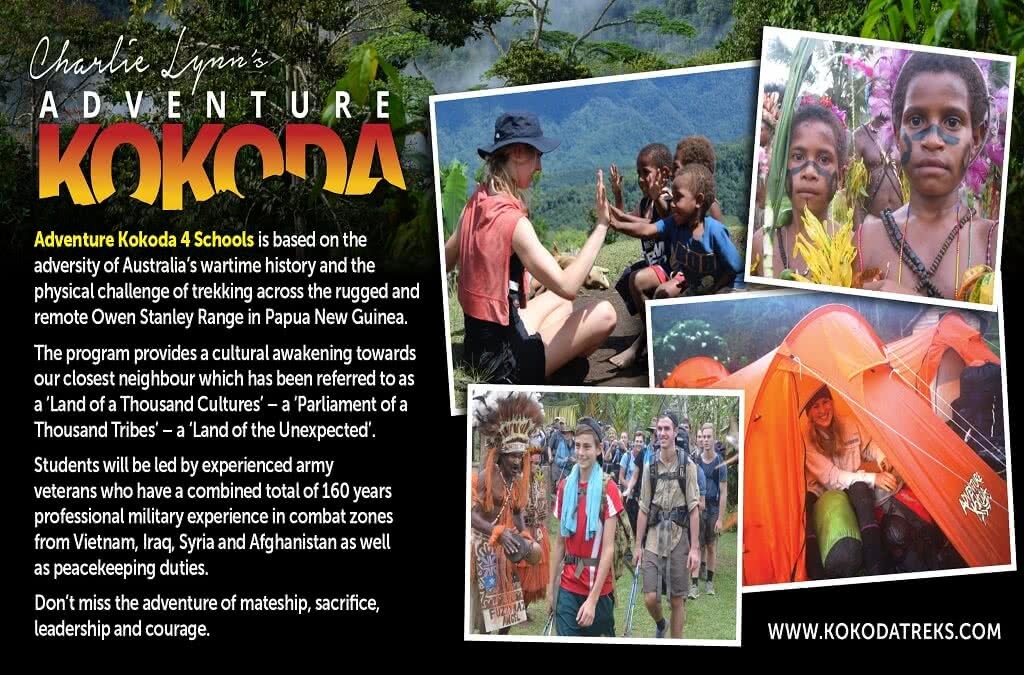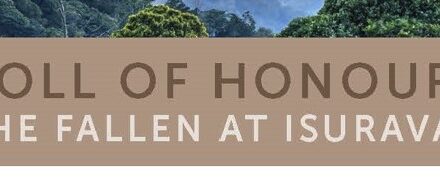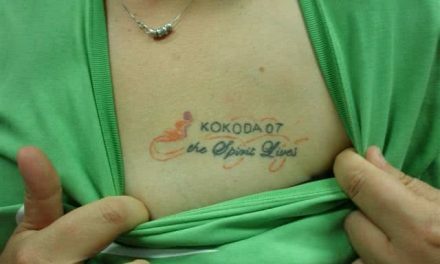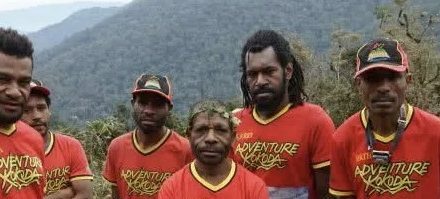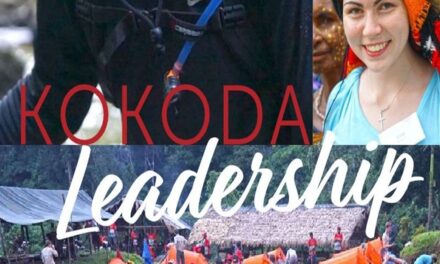Adventure Kokoda Leadership Plus 4 Schools Program:
Synopsis
Learning Outcomes
Essential Due Diligence Checks for School Principles
Why Adventure Kokoda
Trek Leaders
Testimonials
Synopsis
Our ‘Kokoda Leadership Plus 4 Schools Program‘ is based on the historical adversity of the Kokoda campaign. It’s not about victory or defeat – it’s about the ability of the human spirit to conquer adversity. It’s about understanding that their legacy is our liberty. It’s about the development of personal leadership.
‘If you want to discover new horizons you must be prepared to lose sight of land’. The Dalai Lama
Our Leadership Plus 4 Schools program does just that as students embark on a journey to the ‘land of the unexpected‘ – ‘a land with a thousand cultures’ represented by a ‘Parliament of a Thousand Tribes‘.
Papua New Guinea is also our closest neighbour; our former mandated territory; our wartime ally; and our fellow Commonwealth of Nations member.
Students will be supported by, work with and learn about two of the 850 cultural groups that comprise the island nation – the Koiari and the Orokaiva.
They will be led by experienced army veterans who have a combined total of 160 years professional military experience in combat zones from Vietnam, Iraq, Syria and Afghanistan as well as peacekeeping duties around the globe. Their leadership text-book is based on their own personal experiences – and they know how to handle emergencies in remote areas.
Our ‘Kokoda leadership Plus Program’ is based on our collective wartime experiences and the evolution of Australian leadership from Gallipoli, where we fought for Britain and lost – to Kokoda where we fought for Australia, and won!
Our wartime leaders were not the inheritors of British military title, or the descendants of American military dynasties that started with the War of Independence and progressed through wars against Indians, Mexicans and finally themselves in the Civil War.
Our leaders were from a different stock in 1942. When the bugle sounded we were flooded with volunteers from farms, banks, businesses and the public service as they surged to enlist – some even left school to sign up – such as Arthur Grassby who ‘celebrated’ his 17th birthday halfway through the epic Battle for Isurava!
Our army was not big enough to have an elite officer corps – our leaders emerged as a result of their performance on the field of battle. They emerged because they had earned the respect of their peers through displays of personal courage, through their ability to think under duress, their loyalty to their leaders and subordinates alike, and their compassion for those they led.
To understand Kokoda one needs to understand the theory of military strategy and battlefield tactics relating to the four Phases of War – and the principles applicable to each phase. These understandings set the scene for the pilgrimage across the trail and enhance the learnings from our battlesite presentations.
You don’t get this stuff from Google, Wikipedia or a chapter in a war-book – you get it from personal experience!
Learning Outcomes
Our Leadership Plus program for schools meets the learning requirements for the Australian curriculum and the Duke of Edinburgh Awards Program.
During our Kokoda Leadership Plus program students will learn about their own inner strengths and weaknesses and appreciate that it is quite normal to have both. They will learn about the need to seek to understand before being understood. They learn about the ability of the human spirit to conquer adversity and draw inspiration from the stories of mateship, sacrifice, courage and endurance during the Kokoda campaign.
They achieve a practical understanding the fundamentals of leadership. It is a truism that leadership in the cauldron of war is the most testing of all. This is where a leader must inspire troops to go where they might fear to tread; to encourage them to push themselves beyond endurance; to instil in them the values of courage, loyalty and trust; to build teamwork, initiative and a sense of responsibility – and much more.
Kokoda provides many practical leadership examples – good and bad – and as the trek progresses through the various wartime battlefield presentations these lessons are revealed through briefing and discussion which informs students of the characteristics and qualities required to be an effective leader.
Students develop self-confidence as they conquer the physical and emotional challenges they face on a daily basis and gain an understanding of leadership through discussion and the sharing of stories of sacrifice, courage, endurance and mateship during their pilgrimage.
But most importantly they will experience ‘instinctive leadership‘ in a real environment as they take charge of issues as they arise – it might be as simple as helping/encourging a fellow trekker in some small way or taking charge of a situation that suddenly presents itself.
They will also witness ‘instinctive teamwork‘ as they see how their Koiari and Orokaive support crew work together instinctively whenever a challenge presents itself such as the rebuilding of bridges from bush materials to cross flooded creeks safely.
They will also experience growth in personal responsibility and independence through having to make choices each day on a range of self care/gear/issues and living the consequences of those choices.
More than 600 young Australians from all walks of life have participated in our Adventure Kokoda Youth Leadership Programs over the past decade. In 2017 our Kokoda Youth Leadership Challenge was voted as the best youth leadership program by Clubs NSW.
Essential Due Diligence Checks for School Principals
School principals have a Duty of Care to check the following with the trek operator they choose to ensure the safety of their students and to prevent exploitation of local subsistence villagers employed as the support group for their trek:
A selection of testimonials in this brochure indicate that results have far exceeded expectations.
- Risk Assessment: The Kokoda Trail is in a remote mountainous area of PNG – a comprehensive Risk Assessment Plan should be sought.
- Transport Safety: Many operators fly students from Port Moresby to Popondetta to save the cost of a charter aircraft directly into Kokoda. This means they are subjected to a 90 km road journey on the back of trucks via a potholed and unsealed road. The trucks have no provision for personal restraint in the case of an accident. This method of transport for students is illegal in Australia.
- Malaria Prevention: Ensure a mosquito-proof tent is provided for each student – note that it is not possible to hang nets in local ‘guesthouses’ or under tarps!
- Guesthouses: Don’t even think about it – they are simply local bush huts with no protection from increasing infestation (rats, mice, cockroaches and spiders) which has resulted from high usage and inadequate rubbish disposal at these campsites. They also have no privacy for changing clothes or sleeping.
- Exploitation: Many operators cut costs by overloading, underpaying and ill-equipping their local guides and carriers. Verify that they have a maximum weight limit of 18 kg (the maximum permitted by doctors on the trail during the Kokoda campaign); that each one is issued with a personal sleeping bag and mat (temperatures can drop to freezing in the upper reaches of the Owen Stanley Ranges); that they have a full trek uniform (cap, shirt and shorts); they are paid a minimum of PNGK70 per day and a return air ticket or a PNGK250 ‘Walk Home Allowance’. Check them out carefully – there is a reason many of them are cheaper!
- Public Liability Insurance: Seek evidence of a valid Public Liability Insurance Police of at least $10 million per claim.
- Communications: Ensure each group has a SatPhone; at least two VHF radios per group; and 24/7 backup in Port Moresby.
Why Adventure Kokoda?
- Trip Advisor has rated Adventure Kokoda as the No 1 trekking company on the Kokoda Trail for the past 5 consecutive years.
- We are a Registered Activity Provider (RAP) for the Duke of Edinburgh Awards program.
- Clubs NSW rated our Kokoda Youth Leadership Challenge as the best leadership program for young people at their awards ceremony in 2017.
- We are a registered company in both Australia and PNG.
- We have led more than 720 expeditions across the Kokoda Trail over the past 29 years.
- We have ‘graduated’ more than 600 students on our Kokoda Youth Leadership programs.
- We have qualified and experienced ex-military trek leaders.
- We have 24/7 emergency VHF radio back-up from our headquarters at Sogeri – we also have our own helipad.
- We carry a SatPhone and at least 2 VHF radios with our trek groups.
- We practice what we preach. We are the only trekking company to provide for the welfare of our Koiari and Orokaiva guides and carriers by limiting the maximum weight they can carry to 18 kg (this was the maximum weight allowed by army doctors on the trail during the Kokoda campaign).
- We are the only trekking company to engage guides and carriers in equal numbers from ALL villages along the Kokoda Trail.
- We are the only trekking company that provides a full trek uniform (cap, shirt and shorts) together with a personal sleeping bag and mat for each of our PNG support crew.
- We purchase all our food for our treks from supermarkets in Port Moresby – we ‘value-add’ to our menu by sourcing fresh fruit and vegetables from along the trail.
- Our trek leaders have ‘Working with Children’ certification.
- We have established ‘Network Kokoda‘ as a licensed charity and provide more philanthropic support to villagers along the Kokoda Trail than all other Kokoda trekking companies combined.
Kokoda Leadership Team
Our Adventure Kokoda trek leaders include:
Major Charlie Lynn OAM OL
Charlie has led more than 90 expeditions across the Kokoda Trail over the past 29 years.
He previously served in the Australian Army for 21 years. During this time he saw active service in Vietnam; was assigned to the joint Australian, New Zealand and British (ANZUK) Force in Singapore/ Malaysia from 1970-72, and as an exchange instructor in Airborne Logistics with the United States Army from 1977-78. He is a graduate of the Army Command and Staff College.
During his assignment with the US Army he completed the Special Forces Military Freefall course which involved tactical HALO (High Altitude Low Opening) parachute jumps from 20,000 feet – on oxygen with full combat equipment – at night!
After leaving the army Charlie worked with the Australian Rural Leadership Program in the Kimberly running outback leadership survival programs in remote areas. He was later elected to the NSW Parliament where he served as the Parliamentary Secretary for Veterans Affairs.
Major Chad Sherrin MM
Sergeant Chad Sherrin was awarded the Military Medal for his leadership in combat during the Vietnam War. Chad first joined the 8th Battalion, Royal Australian Regiment as a tracking dog handler. He was later posted as an Instructor at the Jungle Warfare Centre in Canungra. He retired with the rank of Major after 25 years service.
Chad later worked in senior management positions in the real estate industry and for Queensland Legacy. He first trekked Kokoda in 2004 and since then has led 85 expeditions across the trail.
His knowledge of the jungle and its surrounding flora and fauna qualifies him as the ‘bush-tuckerman’ of Kokoda. He is also a wonderful mentor to young people as the result of his experiences in the army, business and philanthropy.
Major Scott Babbington
Scott joined the Australian Army as a 16 year old apprentice in 1985. He was promoted through the ranks and has spent over 34 years serving in the Australian Regular Army.
Scott has worked with the United Nations in Sudan as a Military Observer and as an Adviser in Afghanistan with the US 82nd Airborne and the 3rd Infantry Divisions.
Scott has a deep understanding of Australia’s wartime history and is passionate about passing on the stories of our service men
Major Craig Moffat OAM
Craig joined the Australian Army in 1979 and was posted to the Royal Australian Infantry Corps where he has served for 40 years with over 20 years serving in Special Operations Command as a Commando.
Craig has seen regimental service as a soldier and officer rising through the ranks within The Royal Australian Regiment and Special Operations Command, his career culminated as soldier with two Regimental Sergeant Major (RSM) appointments prior to commissioning to officer in 2005.
Operationally Craig has served in South East Asia, East Timor, Solomon Islands, Afghanistan and Iraq.
Craig was awarded the Order Of Australia Medal (OAM) for meritorious service to the Australian Defence Force within Special Operations Command for over two decades. Craig retired from the Army after his final appointment as the Regimental Executive Officer of the 2nd Commando Regiment in 2020.
Craig has served in PNG on a number of occasions as part of exchange programs and exercises with the PNGDF where he developed a keen interest in the Kokoda campaign. With his long time military experience, training in jungle warfare he will use his skills to enlighten and preserve the history of Kokoda.
Sergeant Rod Foster
Rod is a current serving defence member who enlisted into the Australian Regular Army on the 2nd August 1994.
After recruit training he was allocated to the Royal Australian Artillery. Since then Rod has served in Artillery units at various locations around Australia and has worked extensively as a recruit instructor. Rod has also seen active service with the Australian Army Training Team in Iraq in 2005-2006 and in the Sinai during 2015-16 in the Multinational Forces and Observers team.
As a Bombardier, Rod was awarded the Centenary Medal for ‘For service to the career development of subordinates’. Rod’s professionalism, hard work and dedication to his duties earned him high regard from his superiors and the respect of his peers.
Rod has recently been assigned to work in a training role with the PNG Defence Force at their Goldie River barracks.
In 2019 Rod was awarded the highest commendation from the chief of army for the work he was involved with providing a pathway for indigenous recruits into the Australian army.
Commodore Simon Hart CSC
Simon joined the Australian Navy a Cadet Midshipmen in 1973 and carved out an outstanding career spanning 33 years. He specialised in maritime surface ship operations and spent the majority of his career at sea.
His career included command of two Australian Navy Destroyers – HMAS Hobart and HMAS Brisbane. He was awarded the Conspicuous Service Cross for exceptional Leadership and Management as a result of his Command of HMAS Brisbane in 1998.
Simon was promoted into positions serving in senior Tri-service and Maritime Operational Headquarter staff positions during the Timor and Bougainville Operations. He was promoted to Commodore in 2001 when he led the Navy’s Personnel and Training Organisation. His last occupation in the Service was as the Commander, Surface Combat Force Element Group based out of Sydney.
Captain Reg Yates
Reg first went to PNG on an army adventure training exercise in 1984 and over the next five years his groups trekked across the Kokoda Trail, the Bulldog-Wau Army Road; the Wau-Salamaua WW II tracks; walked from Kompiam, WHP to Eram on the Yuat River and boated to Tambanum village; crossed the Saruwaged Range of Peter Ryan’s “Fear Drive My Feet”; and rafted down the Watut River.
During the period 1990 – 1998 he participated in numerous Australian Defence Force (ADF) ‘study tours’ where he explored Shaggy Ridge; the Hindenburg Wall section of Karius and Champion’s 1928 crossing of the headwaters of the Fly and Sepik Rivers; Finschafen, Scarlet Beach and Sattelburg; paddled a dugout canoe on the Sepik River from Frieda River junction to Ambunti; boated through the Gulf of Papua delta from Hohola to Kikori; and at various times visited Daru Island in Torres Strait, Mendi and Tari, Mt Bosavi, Lake Kutubu, Mt Wilhelm, Kiunga, Lake Murray, Wewak and Mission Hill, Rabaul and Tol Plantation, Kavieng, Manus and Baluan Islands, and Milne Bay.
As a result of these experiences Reg was assigned to write a ‘Guide to Adventurous Training in Papua New Guinea for ADF Personnel under the auspices of the Director General Army Training, with advice from the Surgeon General ADF and the Army Malaria.
Reg has trekked Kokoda 64 times; Shaggy Ridge 8 times; Wau-Salamaua 6 times; the Bulldog-Wau Army Road 3 times; Rabaul-Tol Plantation 5 times; visited Finschafen-Sattelberg-Scarlet Beach 3 times; Milne Bay once; and this year he climbed Mt Victoria; revisited “Fear Drive My Feet”; and visited Bougainville for the first time. On Bougainville he visited Porton Plantation, Torokina, Slater’s Knoll, Buin and Buka (with a PNG Tourism official), and the abandoned Panguna mine Research Unit.
Testimonials
William – 17 years:
‘I had many goals for the Kokoda Trail – for example, “finish the trek uninjured” was my main one. “Introduce myself and meet all the trekkers on day one” was another (which I achieved quite well, before even getting on the plane to Papua New Guinea). “Don’t vomit” was achieved, but only just. “Carry your weight the entire way” – I had no choice but to relinquish this goal so as to assure I achieved the “don’t vomit” goal. And then there was “Don’t cry,” and this would have been possible had I expanded it specifically to why I thought I could be crying – out of fear or hopelessness. I didn’t cry out of fear or hopelessness, I stayed positive the whole time. But I did cry.
‘You see, I never could have imagined how huge of an impact the history of the Kokoda Trail and the Kokoda Campaign could have had on me.
‘I couldn’t understand how I would be affected by those stories until I was walking in the footsteps of our servicemen. The Kokoda Trail really forced me to dig deep and connect with the culture – both ours and Papua New Guinea’s – and led me to a new perspective of appreciation, about who we are as communities, and as nations, but most of all, as individuals.
‘The mind is a powerful thing, and after hearing Charlie’s speeches about leadership potential and capability in young people – about the positivity in the world and one’s ability to make a difference – I feel really empowered and inspired to be something in my lifetime. I want to make a difference in at least one small way or another, and I know I will because I’m determined to see that happen’.
Brianna – 15 years:
‘I truly believe this experience has set me up and prepared me for more acts of community service and leadership positions in my local community and beyond.
‘This experience was truly one of a lifetime, and one I am certain I will never forget.
‘Each and every day I draw upon lessons learnt or memories made in order to overcome issues or to make somebody else’s day better. This journey turned my life around and gave me a new meaning, and it has transformed me into a more improved version of myself that I can use to help others who are not as confident in themselves. It is difficult to put into words just how meaningful this trek was and just how much of an impact it had on not only myself, but on the other trekkers in my group as well. The positive development of each person was easily seen as the days went by, and I feel as though every single trekker has come back from this experience more grown and ready for leadership’.
Annalise – 17 years:
‘The mental and physical pain, my deepest and darkest thoughts and the achievement of putting one foot in front of the other, is something that I want to take into my studies, sport and everyday life. I want to now succeed more than ever, to show those soldiers that they died for a purpose.
‘The program itself is fantastic. Well planned, thought out and for a legitimate cause. I recommend this highly to anyone who would like to go walk in the footsteps of solders, experience family history or willing to challenge themselves mentally. The experience and the education I gained from the program, no teacher, textbook or blog post can ever describe what Kokoda is about’.
Grace – 17 years:
‘It was such a great experience, I learnt so much from Kokoda, both historically and personally. I especially liked how we were encouraged to set personal goals to change something about our life when we returned.
‘I have come back to Australia and applied for a volunteer internship with UNICEF through my summer holidays and I would never have had the motivation if it were not for Kokoda and the experiences which I had over there. I have also volunteered with Red Cross’
Simone – 19 years:
‘ Put simply, the Kokoda Youth Leadership Program has changed my life. I have tried to explain it to friends and family at home and the way that I described it was –“like stepping into another world, and stepping back out.”
‘Having only returned 10 days ago, I feel that the trip still seems quite surreal, although I have already noticed the changes that I as a person have undertaken in such a short amount of time. I have no doubt that I will grow even more as time goes on.
‘I found the trek overwhelming – it was mentally and emotionally draining, as well as physically demanding. But, I stand true to my belief that Kokoda is the best thing that I have done in my life thus far – and it will be hard to top it. John Nalder, my trek leader, was described in my Kokoda diary as “the wisest man I have ever met.” I’m not sure what it was about John, but he has a way of reading people, and I felt that he was watching over me the entire trek. He has a way of being able to tell you how you’re feeling, when you’re not even sure how you’re feeling! Honestly, I would not take back any aspect of the Adventure Kokoda trek’
Felicity – 19 years:
‘I really enjoyed the chance to get to know locals, play with kids and observe life in the villages, and was really inspired to return when I’m a qualified doctor to work in some of the hospitals in PNG.
‘I definitely learned more about leadership from Simon than in our leadership program that preceded the trek. I learned a lot about myself and had a chance to reflect on the way I got through the tough bits of the trek, as well as some insights into my own personality in a broader sense. It was also great to get to know my friends better and observe how we all dealt in different ways with the difficulties, and adjusted our own behaviours to fit in with the group.
‘I was really touched and moved by the memorial service at Isurava memorial, and also the poem Simon read at Brigade Hill. These were both real highlights of the trip for me. I have never been so affected by poetry and war stories, and I think it has given me a new interest and sense of connection to that part of our history. I just wish my grandfather was still alive so I could talk to him about it’!
James – 17 years:
‘With the experience of a lifetime handed to me by this program, I wish to contribute to the wider community, as my form of thanking you for a life-changing journey.
‘Through Kokoda, I have learnt of personal abilities that I have not been familiar with, such as maintaining an optimistic and positive attitude, regardless of any circumstances, and to understand that adversities always have a problem and it is up to the individual to ‘find a different trail’.
‘I have acquired new leadership abilities such as understanding others before being understood and many more. I have learnt not to set high expectations for anything, to avoid disappointment, which greatly contributed to my optimistic attitude which carried me throughout the 10 days. In terms of teamwork and group effort, everyone has made responsible decisions that determined their successful completion of the trail. Understanding that the program is meant to develop leadership abilities, they resolved to taking care of each other and pushing each other over the Owen Stanley Ranges and over the finish line, and they should be proud of themselves.
‘With the experience of a lifetime handed to me by this program, I wish to contribute to the wider community, as my form of thanking you for a life-changing journey’.
Brendon – 17 years
‘During the trek, we were taught about different examples of leadership, ranging from officers and individuals of high responsibility back in the war right up to modern day examples such as the “instinctive leadership” of the local trek guides and their natural response to any danger.
‘The group was also lectured on the 7 essential understandings of effective leadership, which include the understanding of self, others, culture, environment, history, present and the future. I found this to be very beneficial for myself as I can relate these aforementioned characteristics to my studies at school.
‘Upon returning home from Papua New Guinea, it has given me the opportunity to reflect on what was ultimately a life changing experience’.
Alana – 17 years
‘The trek leadership team consisting of Charlie, Scott and Fiona were
absolutely outstanding. They really inspired me along the trail and I
enjoyed listening to their stories. They helped all of us grow into the newleaders we are today, and the experience would have been different without them.
‘From the experience I learnt about the sheer determination I have
instilled within me and my ability to help others even when I need it as
well. I would have learnt this without the pressures of the Kokoda trail.
I learnt about the pure determination I have to keep going through the pain and wake up every day with a positive attitude to conquer every
mountain’.
Elise – 19 years
‘The program was amazing. I left with a greater appreciation and respect for our Anzacs, a deep respect for Papua New Guinea culture, and great courage and leadership skills.
‘I simply cannot put into words the amount I learnt about myself during my time on the trek. I have learnt to become more selfless and kinder towards others. Because of this I have just registered for the Worlds Greatest Shave to assist those suffering with Leukaemia.
‘I learnt that leadership doesn’t come in the form of a badge or a qualification. It shines through in times of hardship through everyone’.
Kristiana – 16 years
‘I am so in awe of the program and its ability to touch the hearts of young people, including my own. I am so thankful for the opportunity to have followed in the footsteps of the brave, and to have met such funny and amazing people who I hope I never lose contact with. It’s hard to find the words to describe this program, it is simply amazing. It is so rewarding, please always continue your work.
‘I learnt that I am capable of so much if I just put my head down and focus, and it is so true that you are only as powerful as your mind. I also learnt how much I love meeting new people. I was never sure of whether or not I was an introvert or extrovert, and while I still feel that I am neither, I very much enjoyed the company of new friends. I also feel that I don’t give myself enough credit sometimes, and now that I have completed the trail, I feel that I am more patient and kind to myself.
‘I found that mind over matter truly applies on the Kokoda Trail. I experienced a lot of self doubt prior to the trek, however I did not let those thoughts in during my time on the trail. I didn’t even want to think about failing, and I think that’s what got me to the arches at Kokoda.
‘Determination and self belief were key to my journey on the trail, and I hope to apply these values when I face adversity in my life.
‘Leadership is not necessarily a title or badge. It is the way you treat others and the way you tackle situations. After doing the trek, I feel that the best leader is one who genuinely cares for those they lead, with the ability to support and empathise. Someone who knows their people so that they know how to encourage them when morale is low. While you can “lead” without these qualities, people will find it easier to follow you if you’ve truly earned their trust and respect.
‘The program has reminded me that there is so much more to life than working and earning money. It is important to maintain meaningful relationships, continue learning about yourself, others and the world around you, and helping others. The work Adventure Kokoda does for local communities is inspiring. I hope I can contribute to something so special in the future. It was so rewarding to learn about the Kokoda campaign, and how difficult it must have been to fight for our Australian soldiers. It’s
hard enough to walk the trail, I couldn’t imagine fighting in those conditions. I’m thankful to the brave Australians who died fighting for our country so that we could live without fear’.
From a King’s School Father:
‘Dear Charlie,
‘Thank you for making my experience walking the Kokoda Trail so memorable. I believe it will be 10 days that stay with me for the rest of my life.
‘For me it had it all, emotionally moving, physically challenging, historically interesting, breathtakingly beautiful, and really good fun. To have the opportunity to experience all this with George made it all the more special. In saying this it just would not have been the same without your inspirational leadership. Your detailed knowledge, relaxed positive attitude, moving recitals made it a pilgrimage (as you promised) rather than a tough walk in the jungle. But what impressed me most was the life changing education you gave the boys (and fathers) and your interest, concern and positive programmes you have implemented under trying circumstances for the local people.
‘The motivational leadership addresses you gave to the boys will have a big impact on those 17 soon to be young men who were privileged to have the opportunity to hear and spend time with you at such an impressionable age. I believe the young men who’s ‘Endurance-Courage- Mateship-Sacrifice’ we remember as we walk the Trail would be pleased the high example they set would be used to help educated our young leaders of today. I was very proud of the way the boys (particularly George) handled the tough conditions with enthusiasm, good spirit and the without complaint.
‘A few times stand out for me. The talk you gave us over looking Eora Creek was one. I found it particularly moving. We where fortunate to witness this beautiful location on a stunning day. Its hard to imagine so many young men died in appalling conditions on that very spot, and as you rightly pointed out our Governments have done nothing to recognise their sacrifice.
‘That memorable second day is another. I think it was 12 hours with incredible steep descents, equally tough climbs, and to top it off torrential rain with the last couple of hours in the dark. Looking back I would have felt cheated not to experience such conditions. But the most memorable moment of that day was the sight of Dick carrying two packs running past me in the pouring rain as I struggled across a swollen creek wondering why he was in such a hurry.
‘Hearing later that after dropping the packs he then ran back to help Bruce and Ben into camp. I think that action sums up the spirit of your porters and the loyalty and dedication you instil in them. They are indeed great ambassador’s for their people.
‘Thank you again for a wonderful, wonderful experience. Next time your down in Cootamundra be sure to give me a call. I’d love to have the opportunity to share another ‘wee dram’ with you.
‘Kind regards,
‘Charlie Baldry’
From a King’s School Teacher:
‘I just wanted to email you all to say a big thank you for the great trip away, and a great experience on the Kokoda Trail. Thank you to Charlie for sharing his wonderful insights and experiences, making each day unique, ‘enjoyable’ and memorable. His lessons of history, leadership, and character development are of benefit to us all.
‘Thank you to the parents – your support and company was great. It was inspiring to see the fantastic relationships and care you have for your boys, and I hope the boys appreciate how special that experience was, and the sacrifice you made in taking time out from your very busy professional lives to share a unique experience with them.
‘Of course, thank you to the boys. You all showed great resilience, discipline, organisation, and character throughout the trek. I remind you now of what Charlie said to you at the Bomana War Cemetery. That there will be many times in life where you are tempted to take short cuts, to quit, or to take the easy way out. When you are feeling tempted, think back to the sacrifice made by Australians before you, and your responsibility to make the most of the many opportunities that are afforded to you at school and beyond.’
Dean Papandreas
